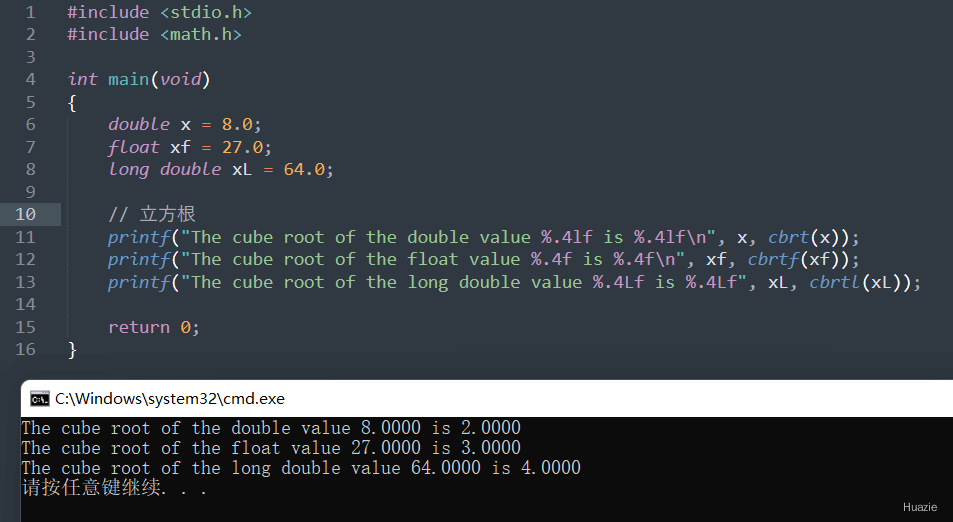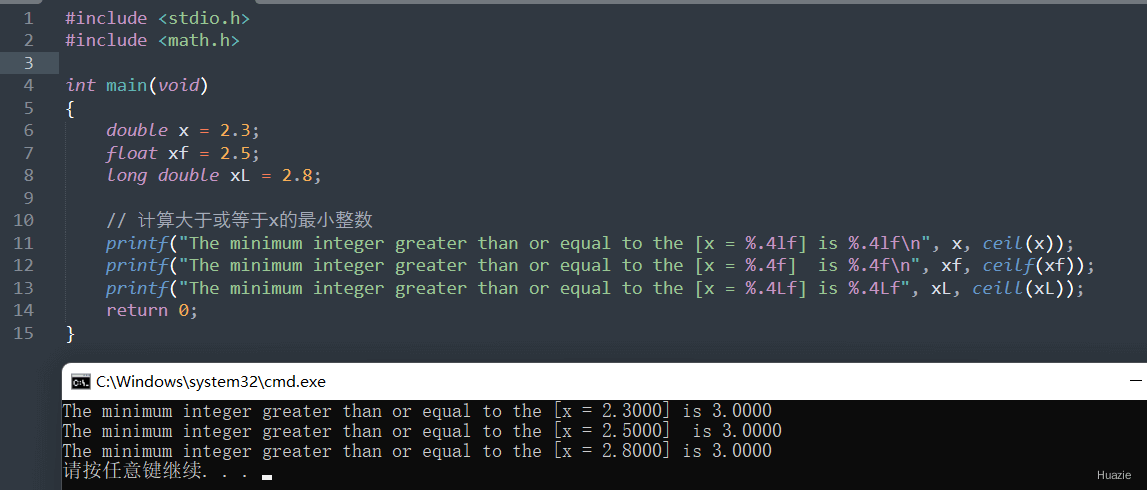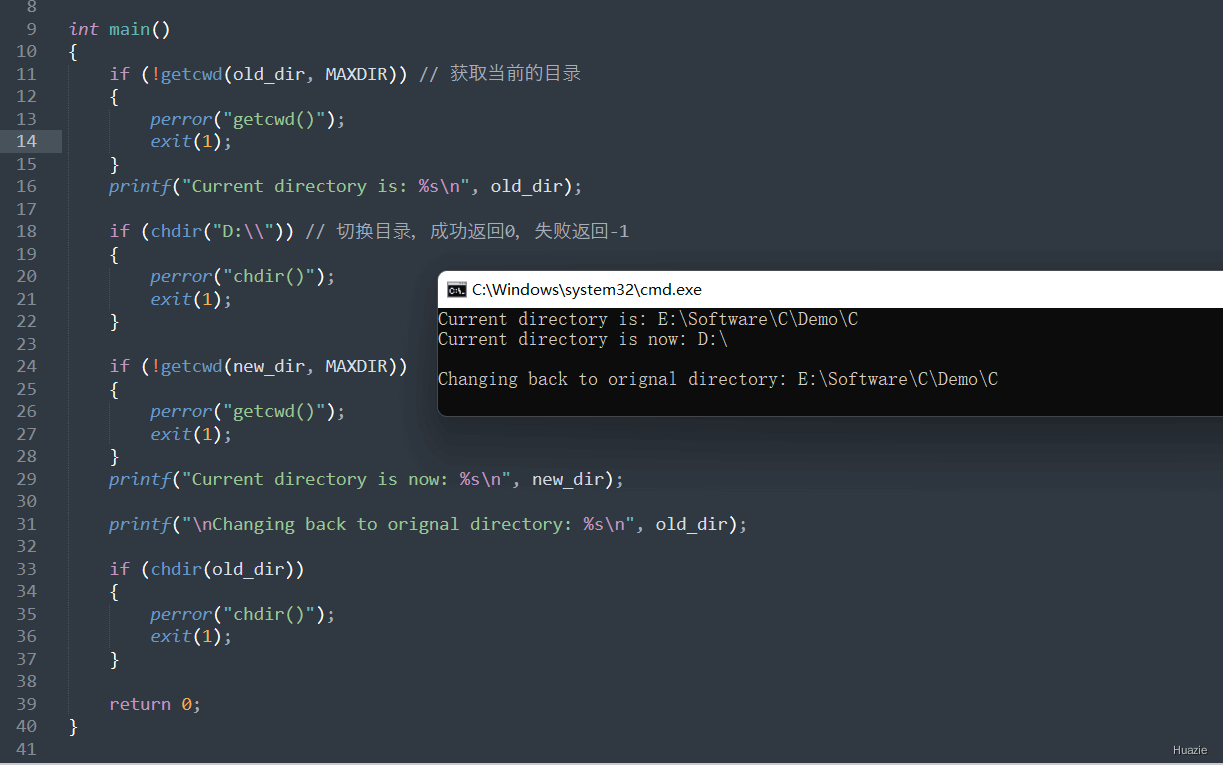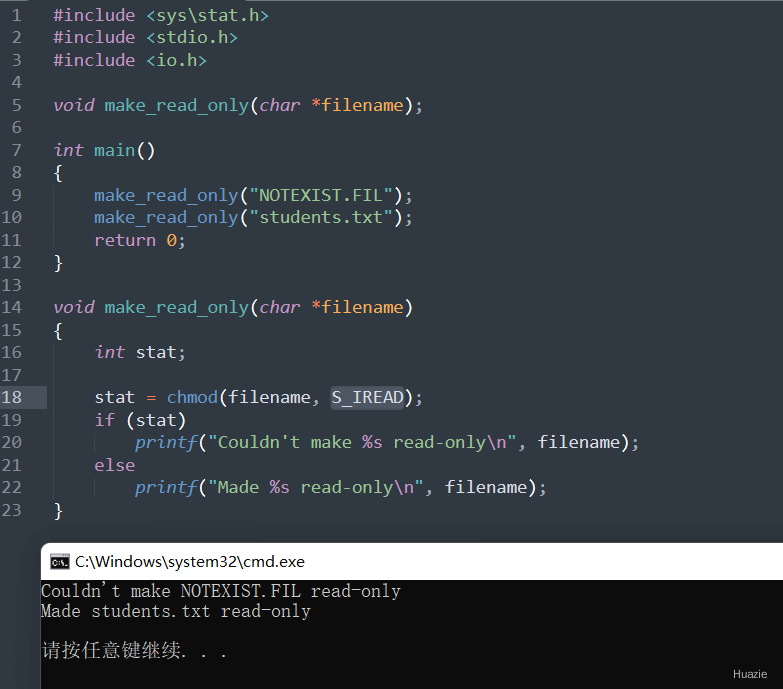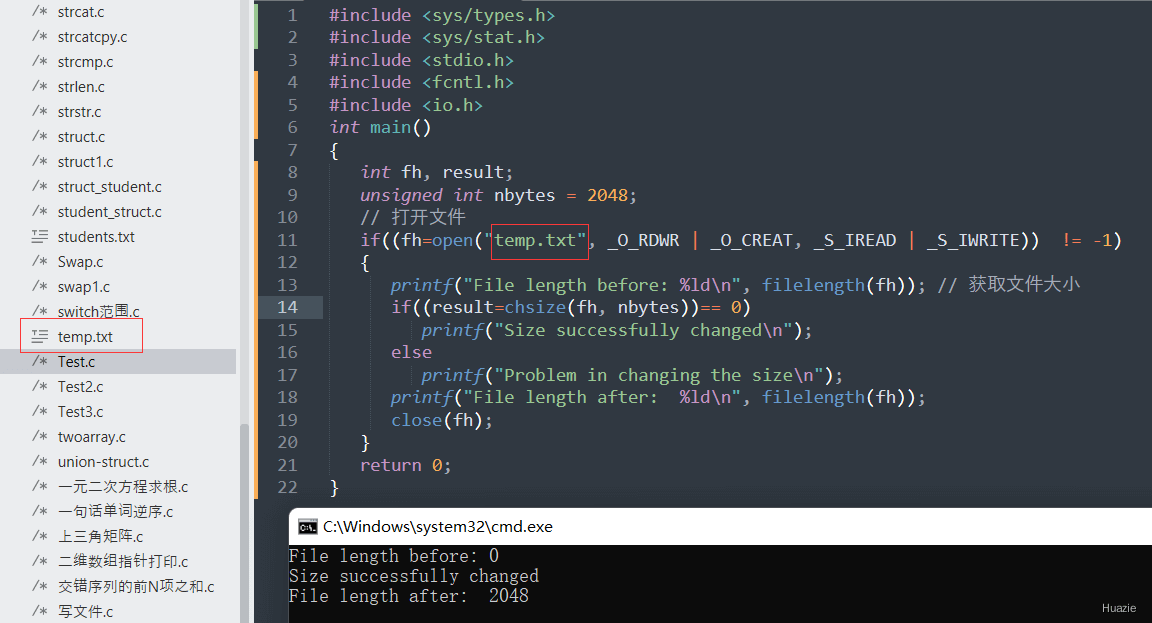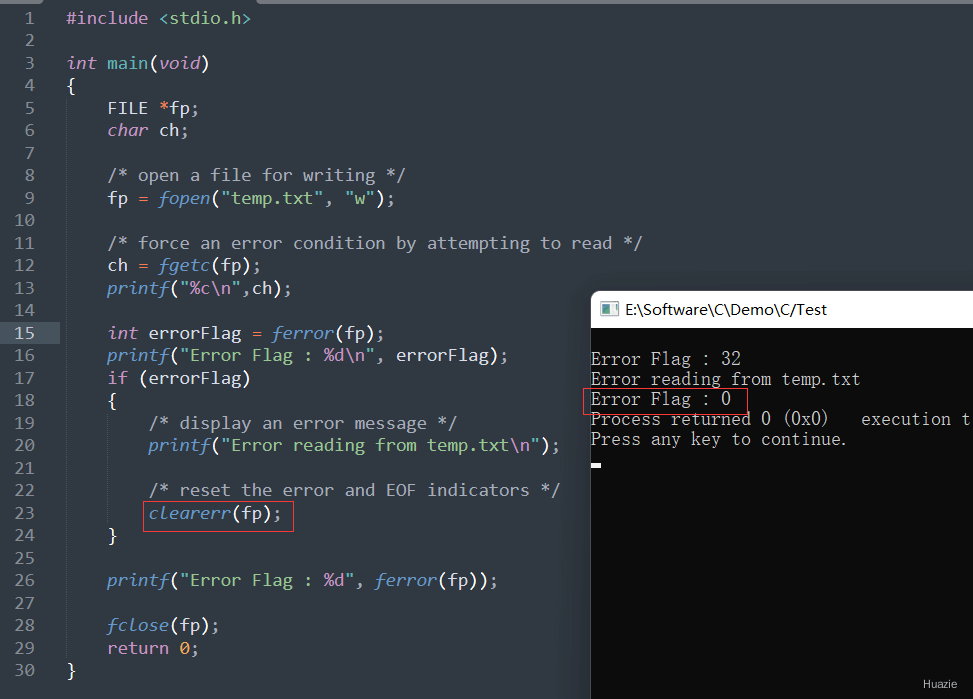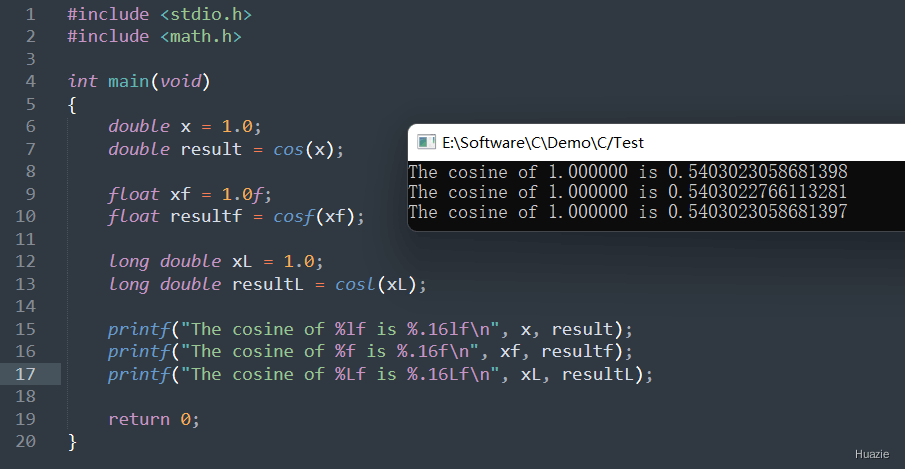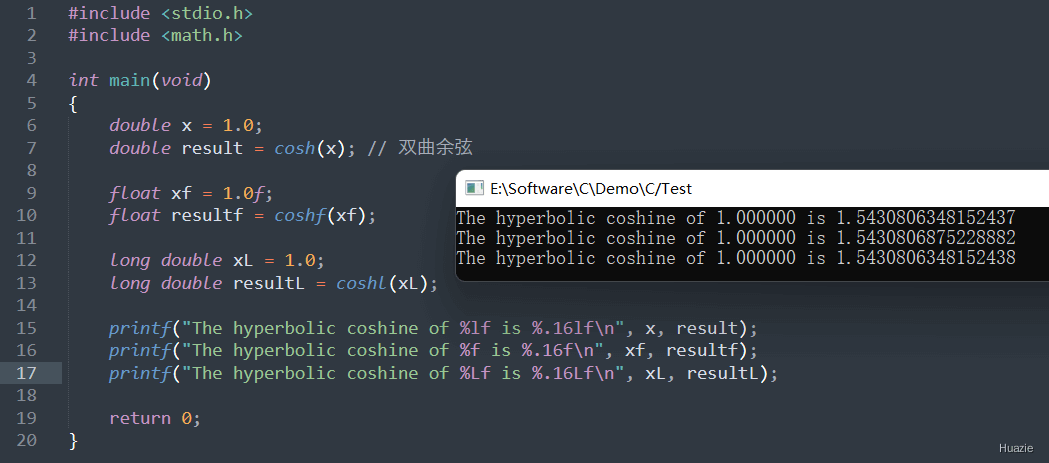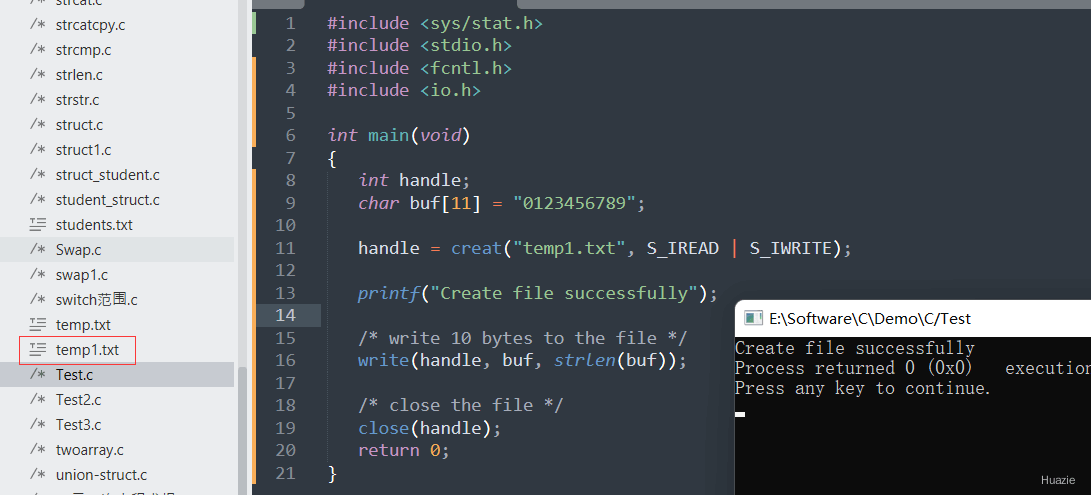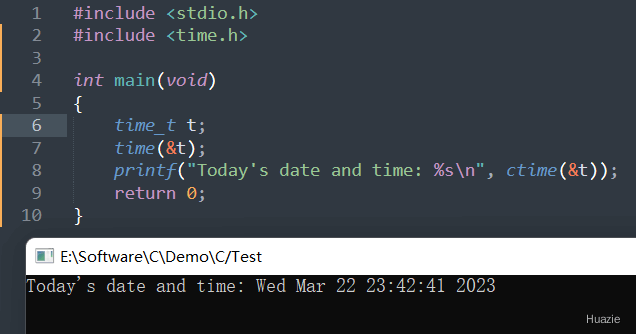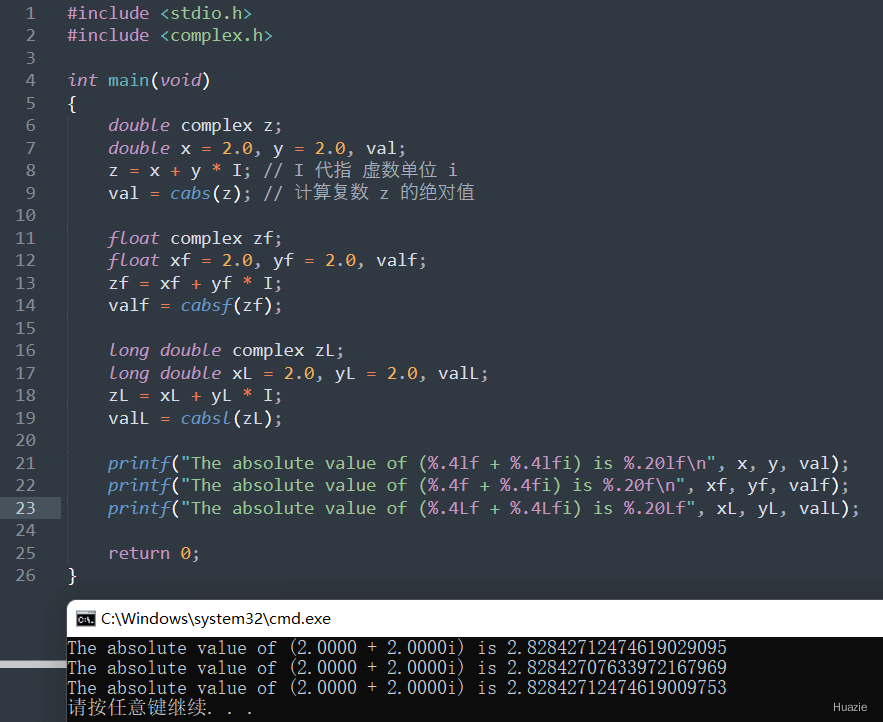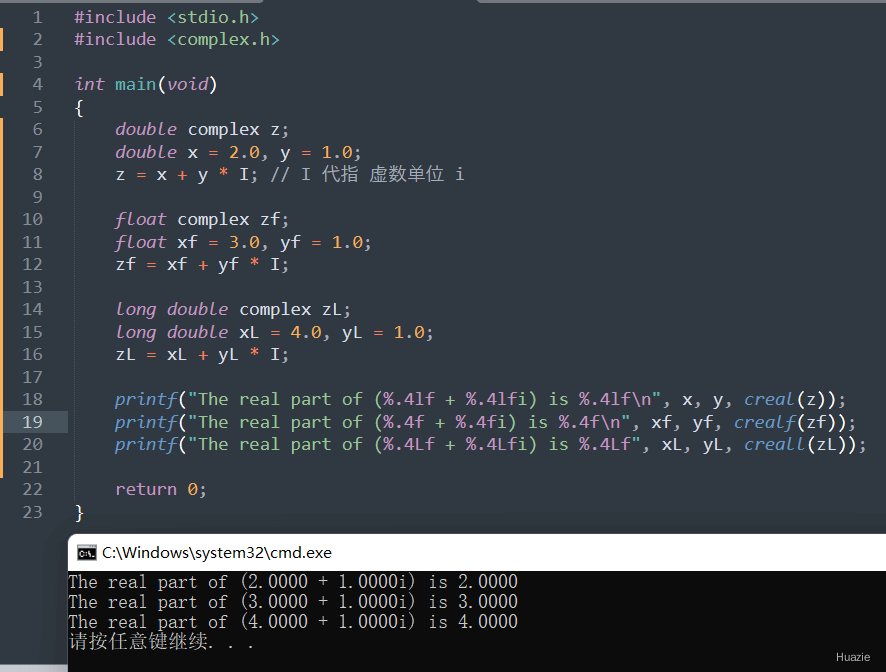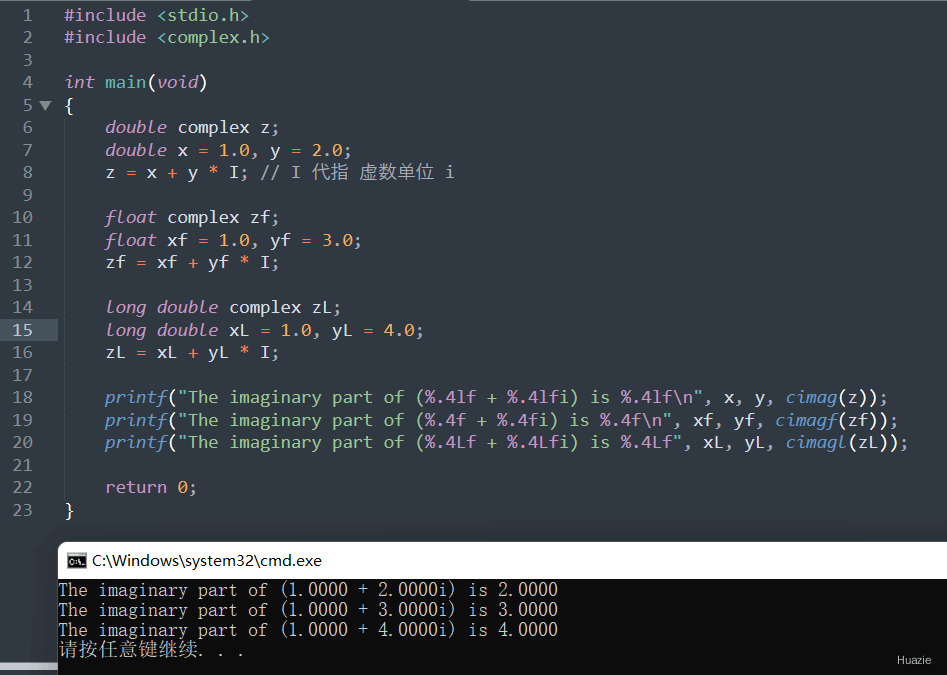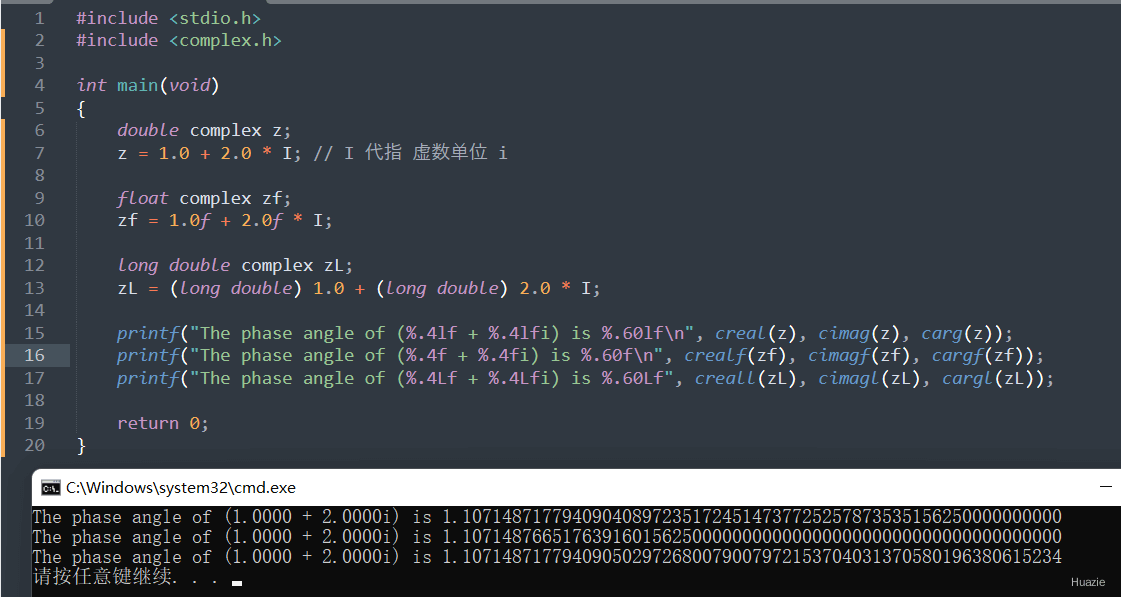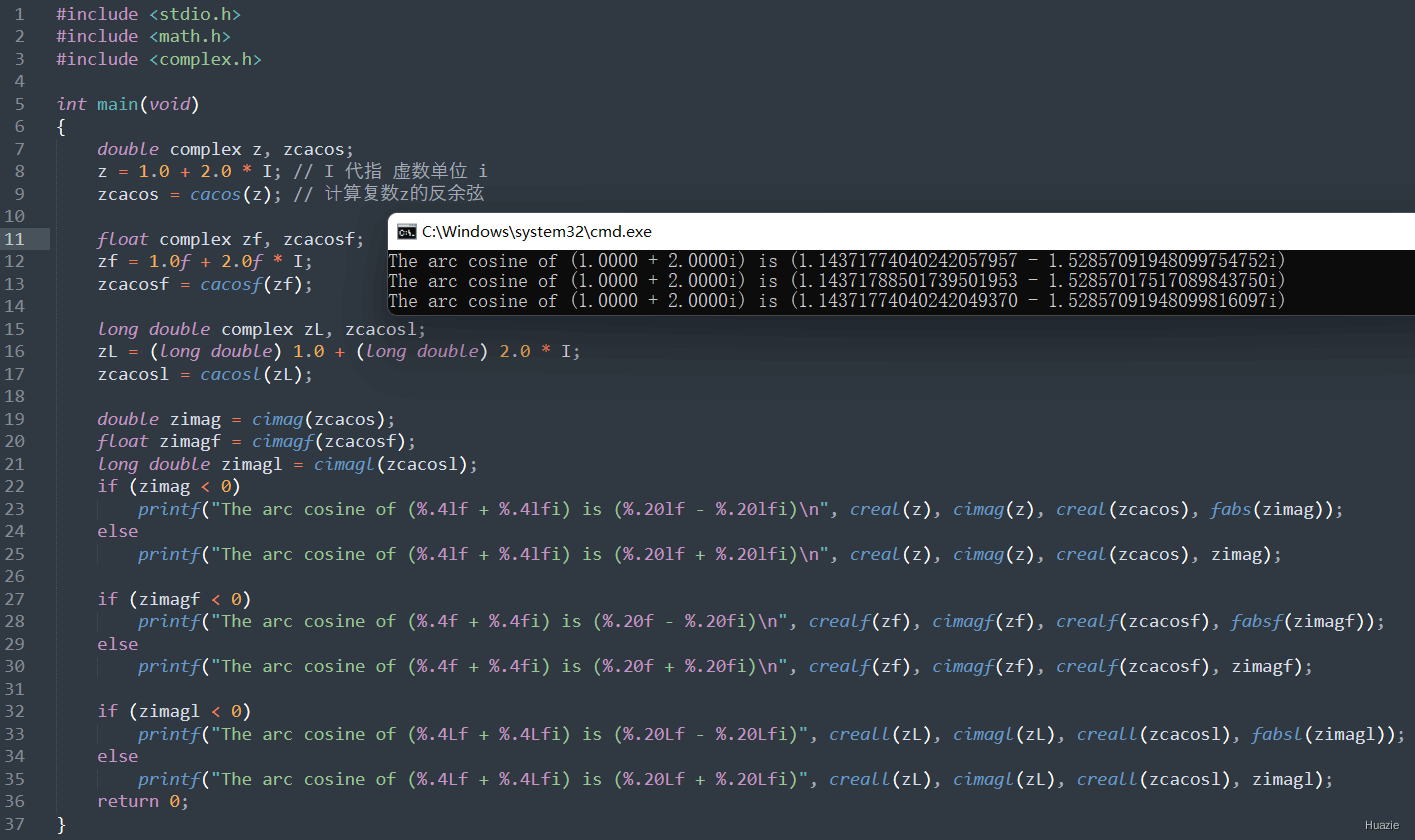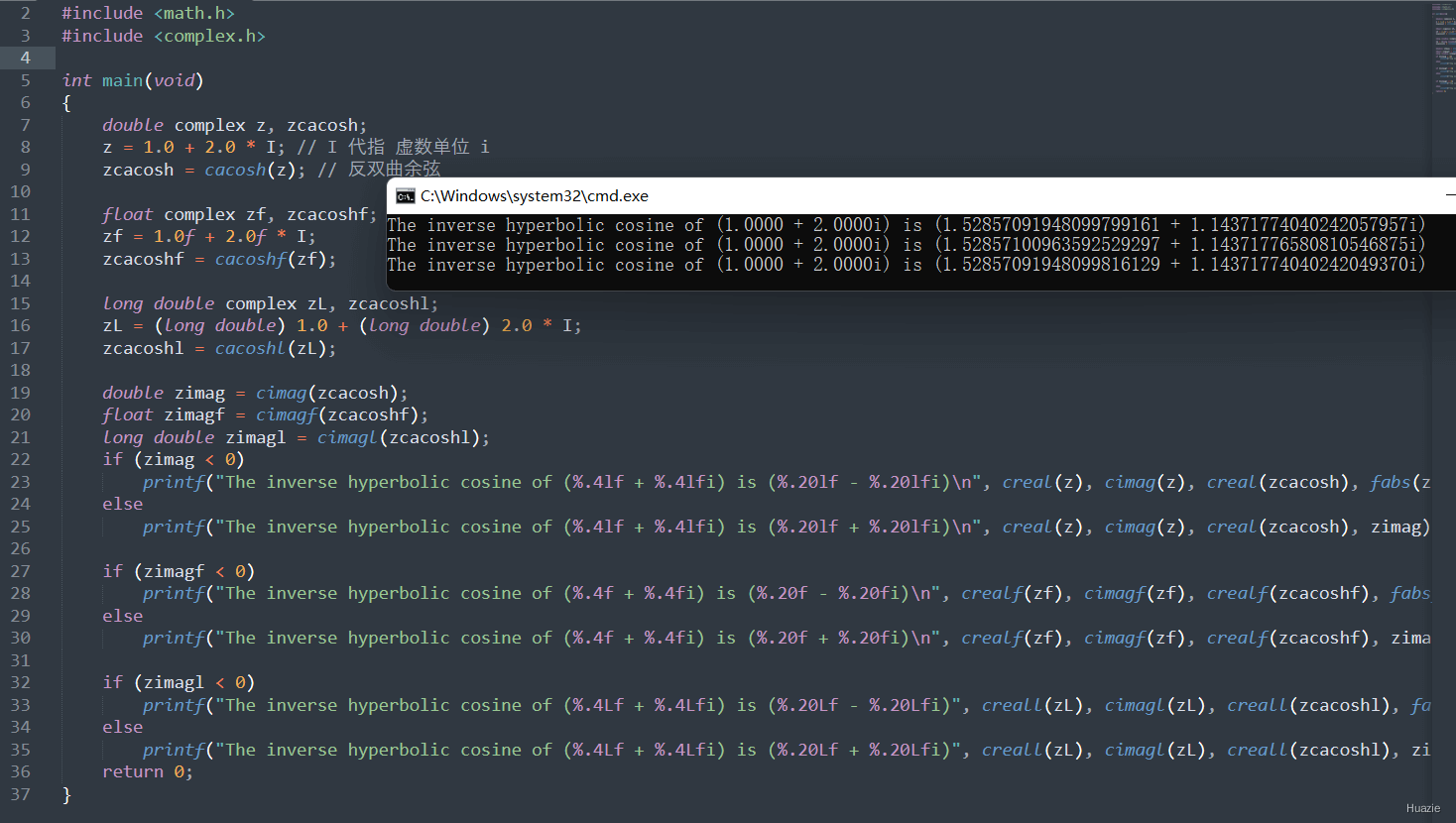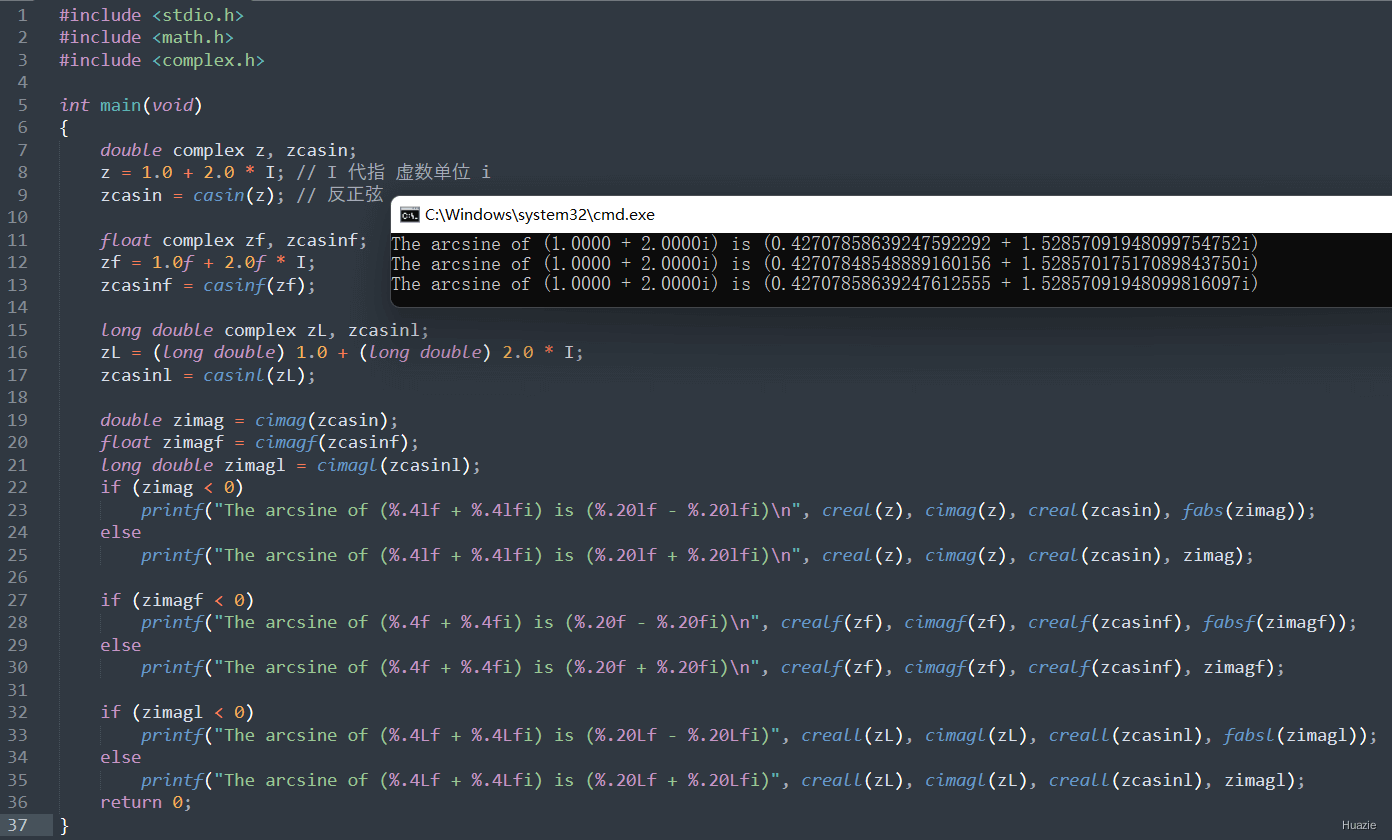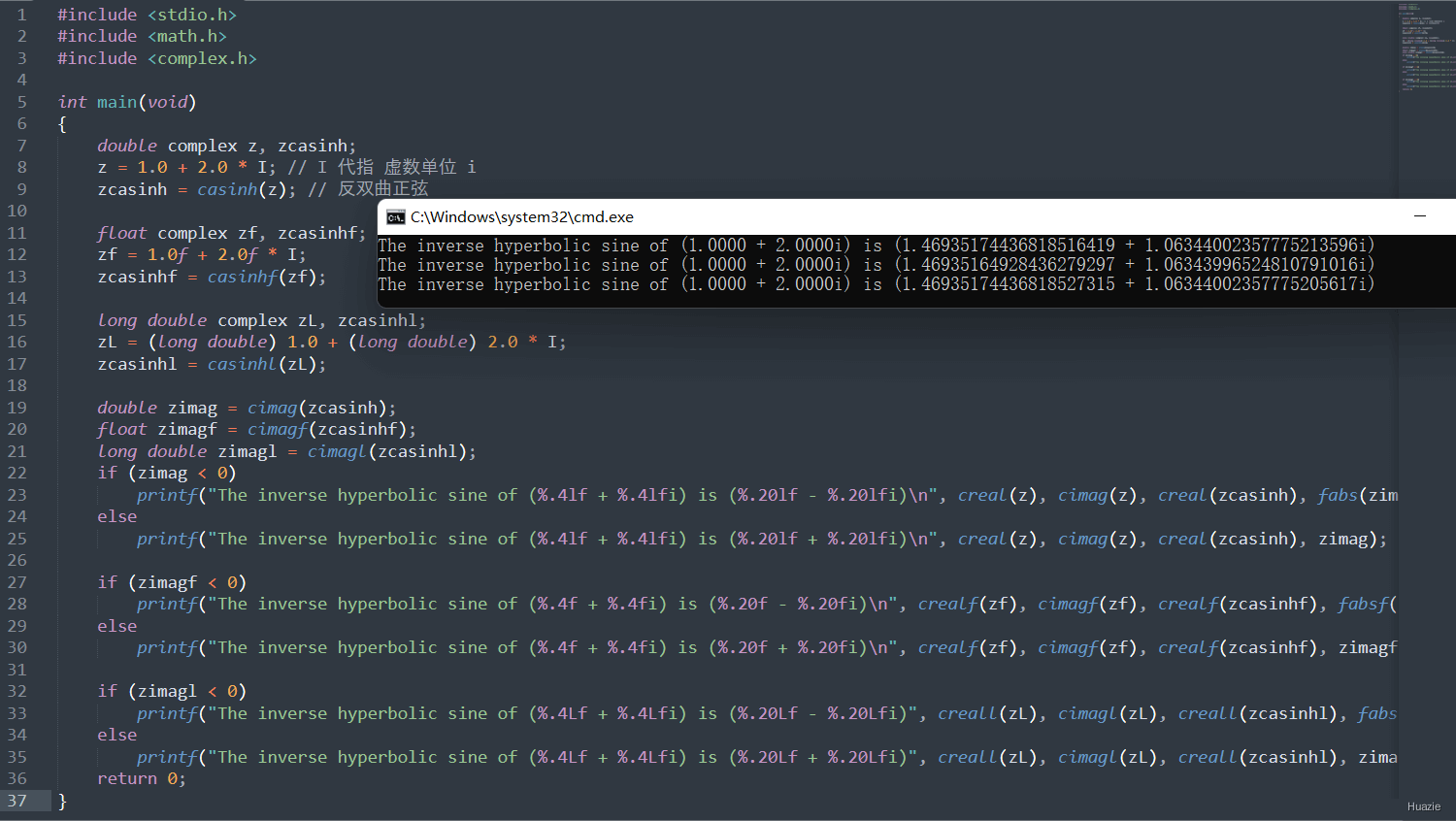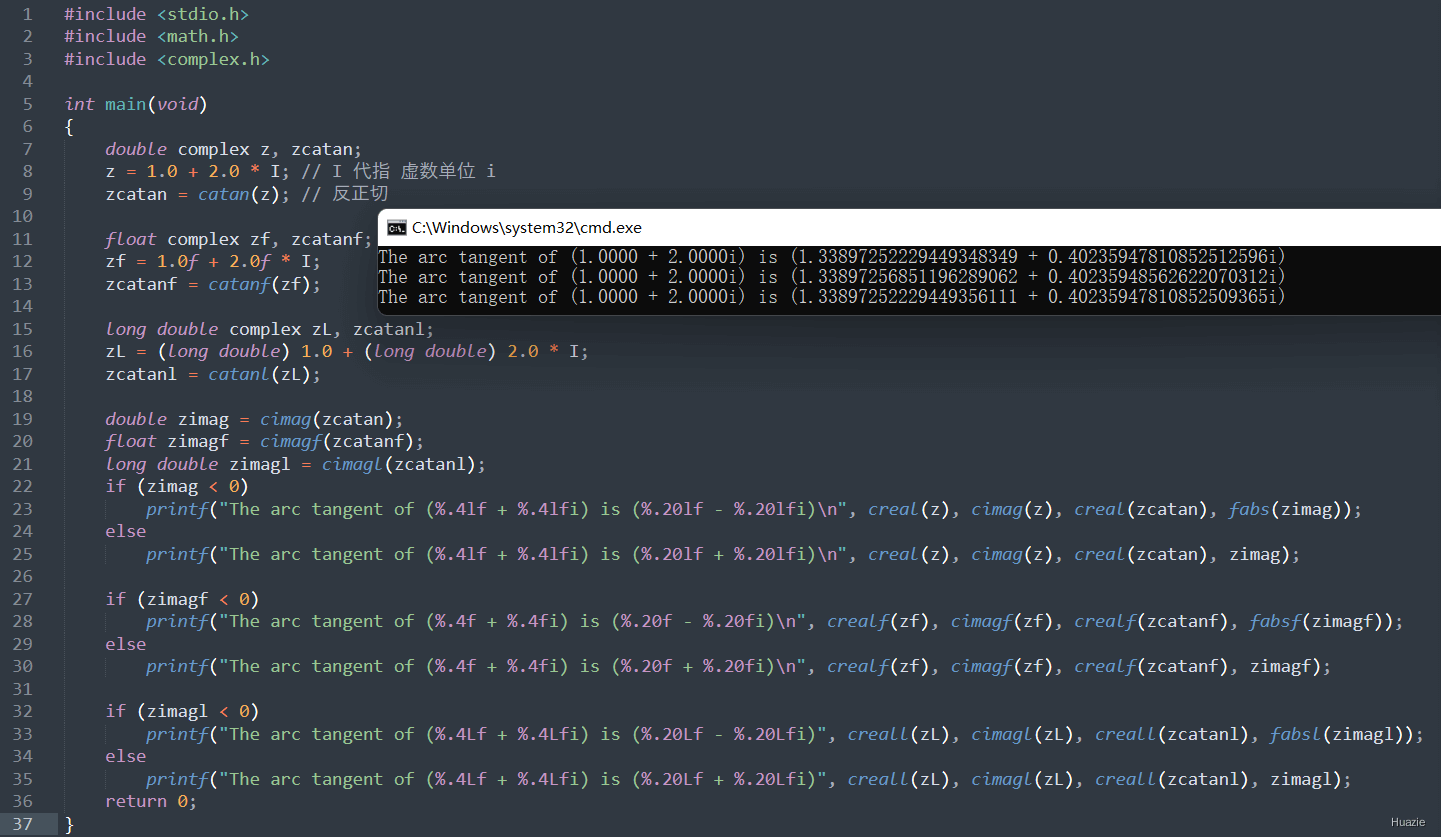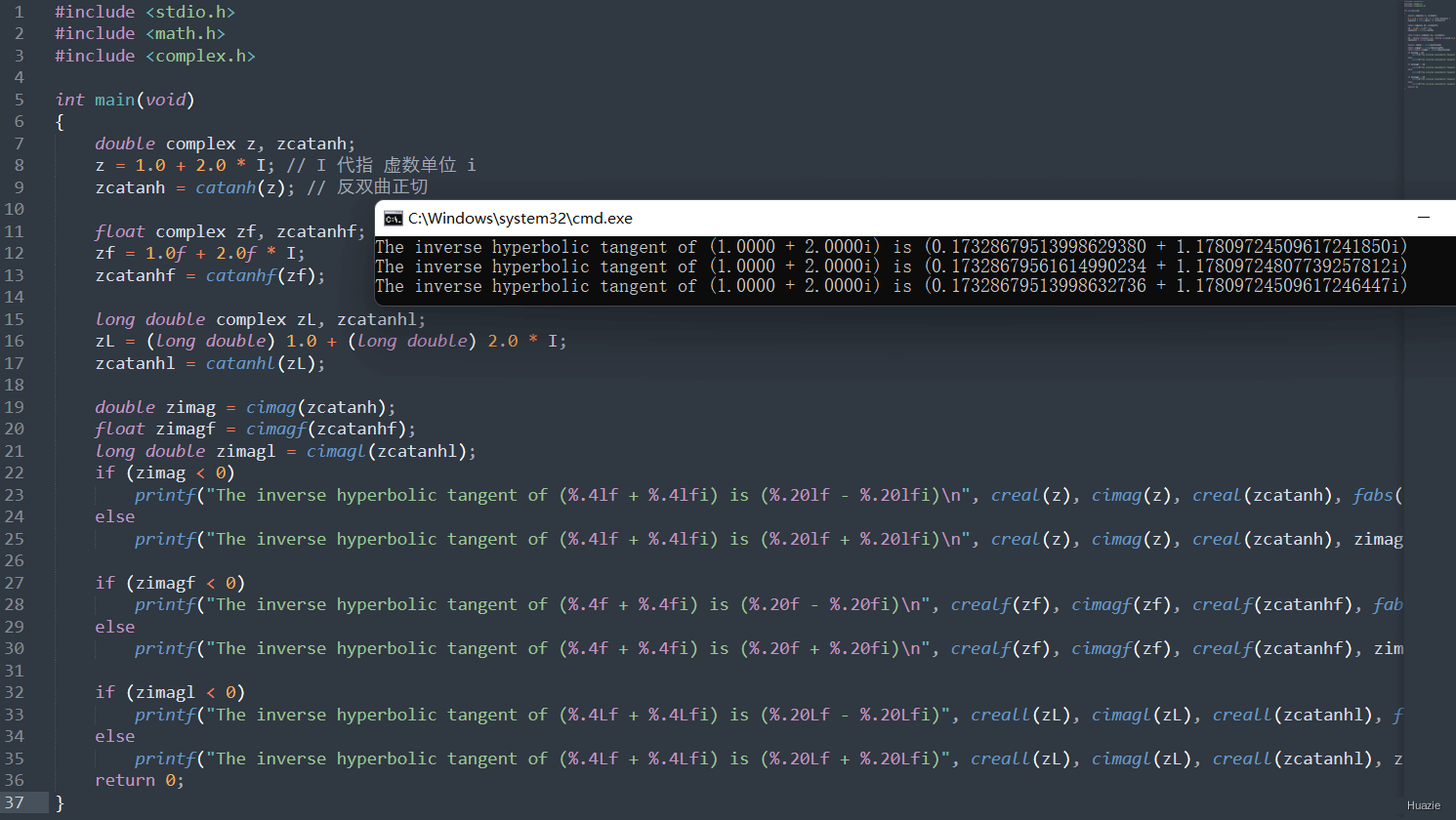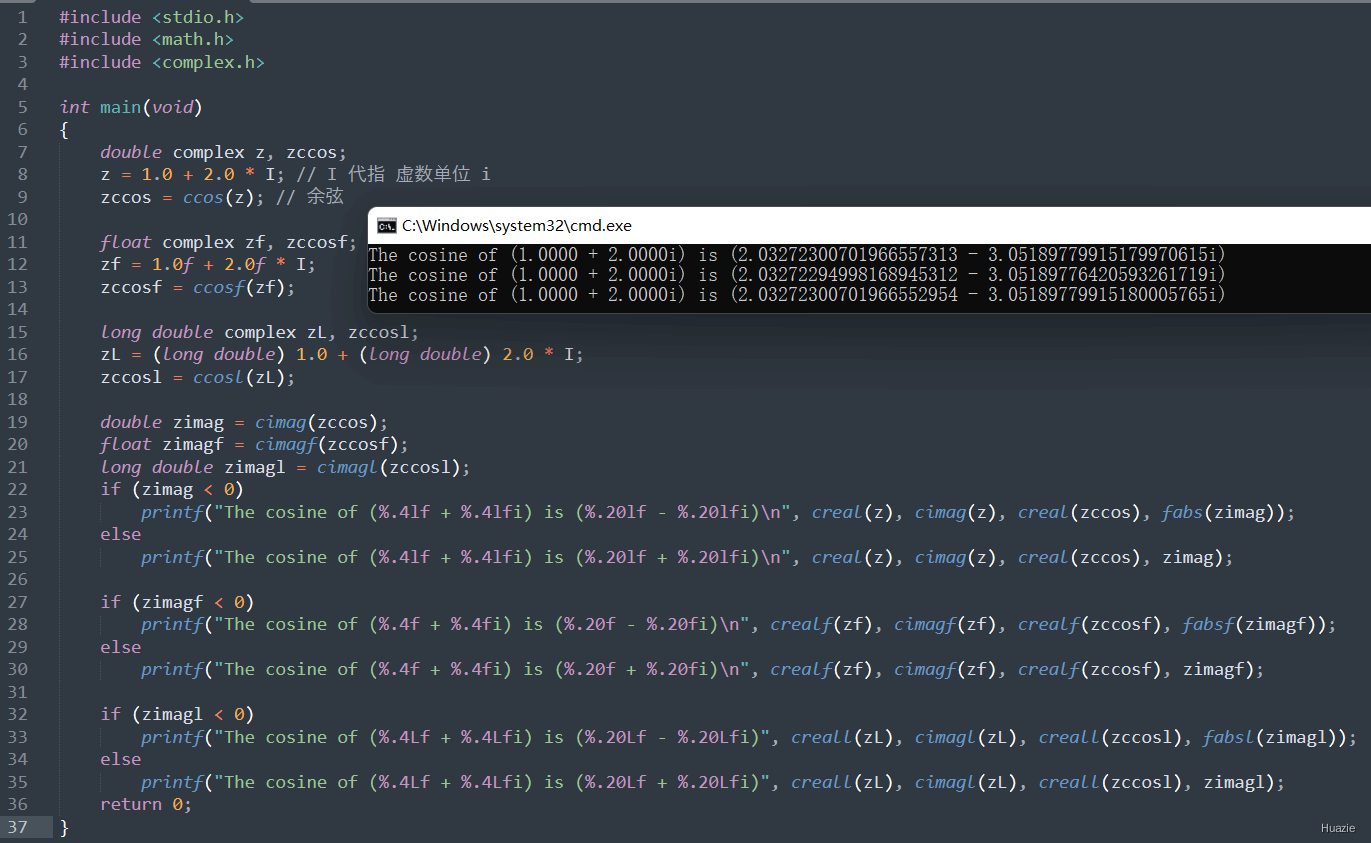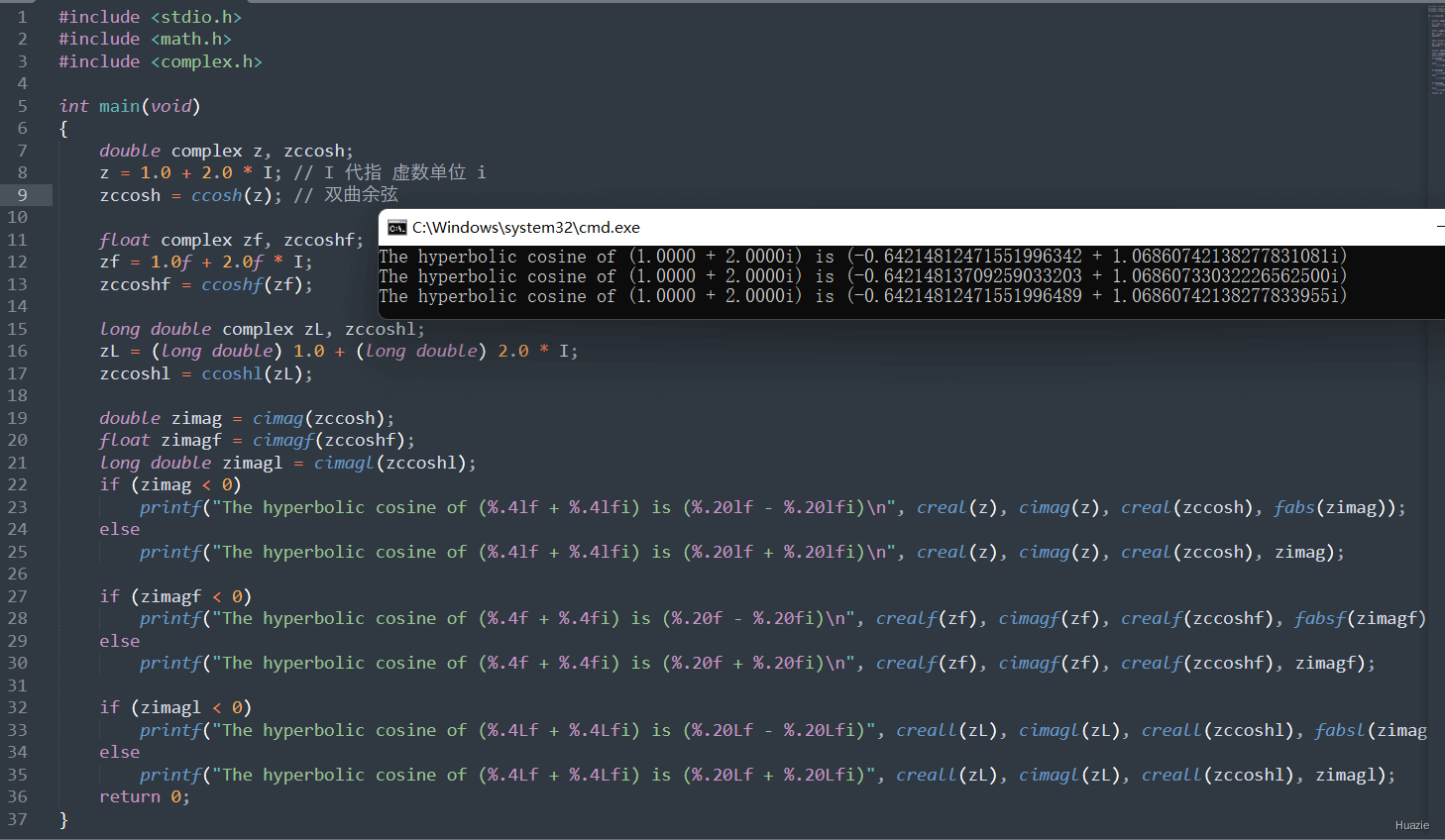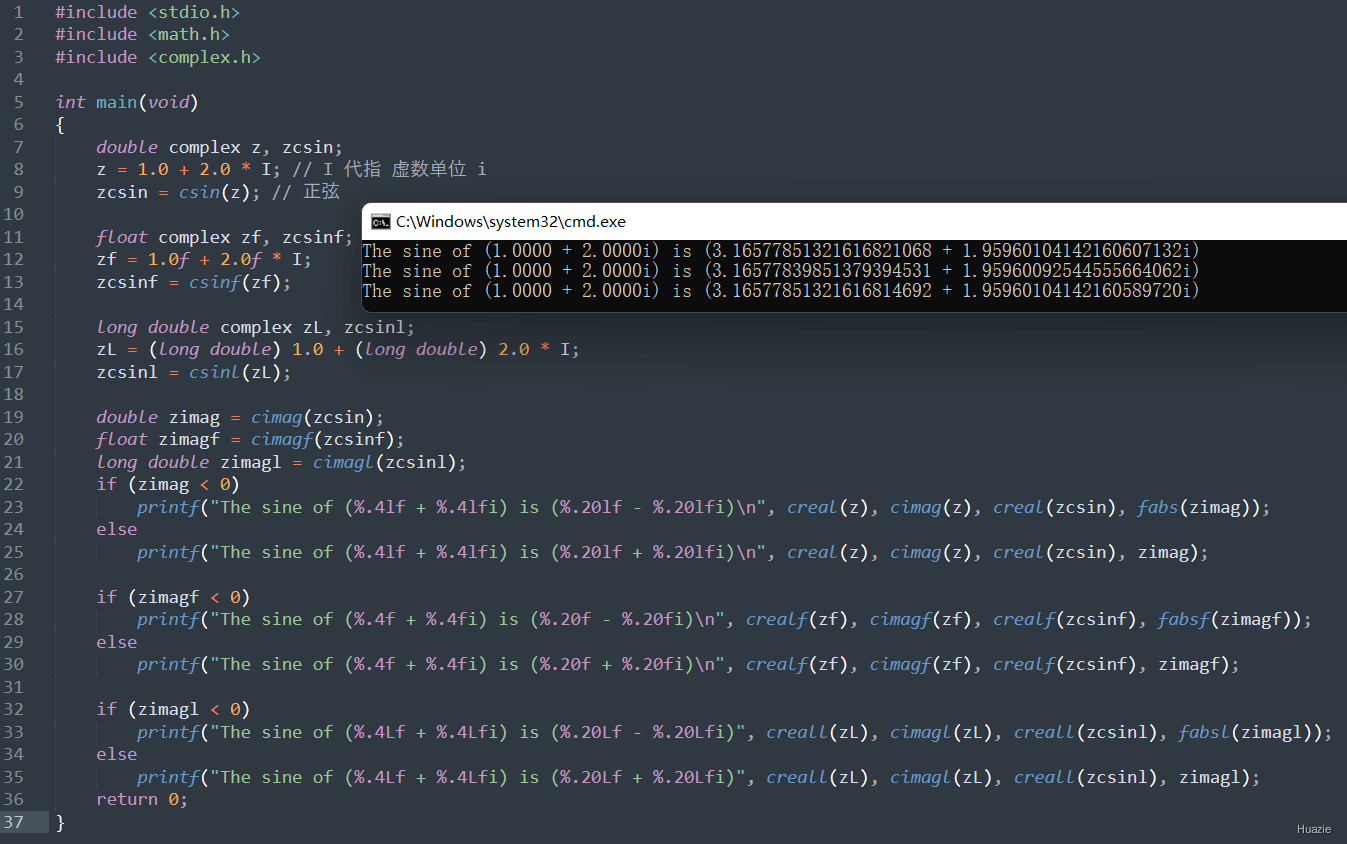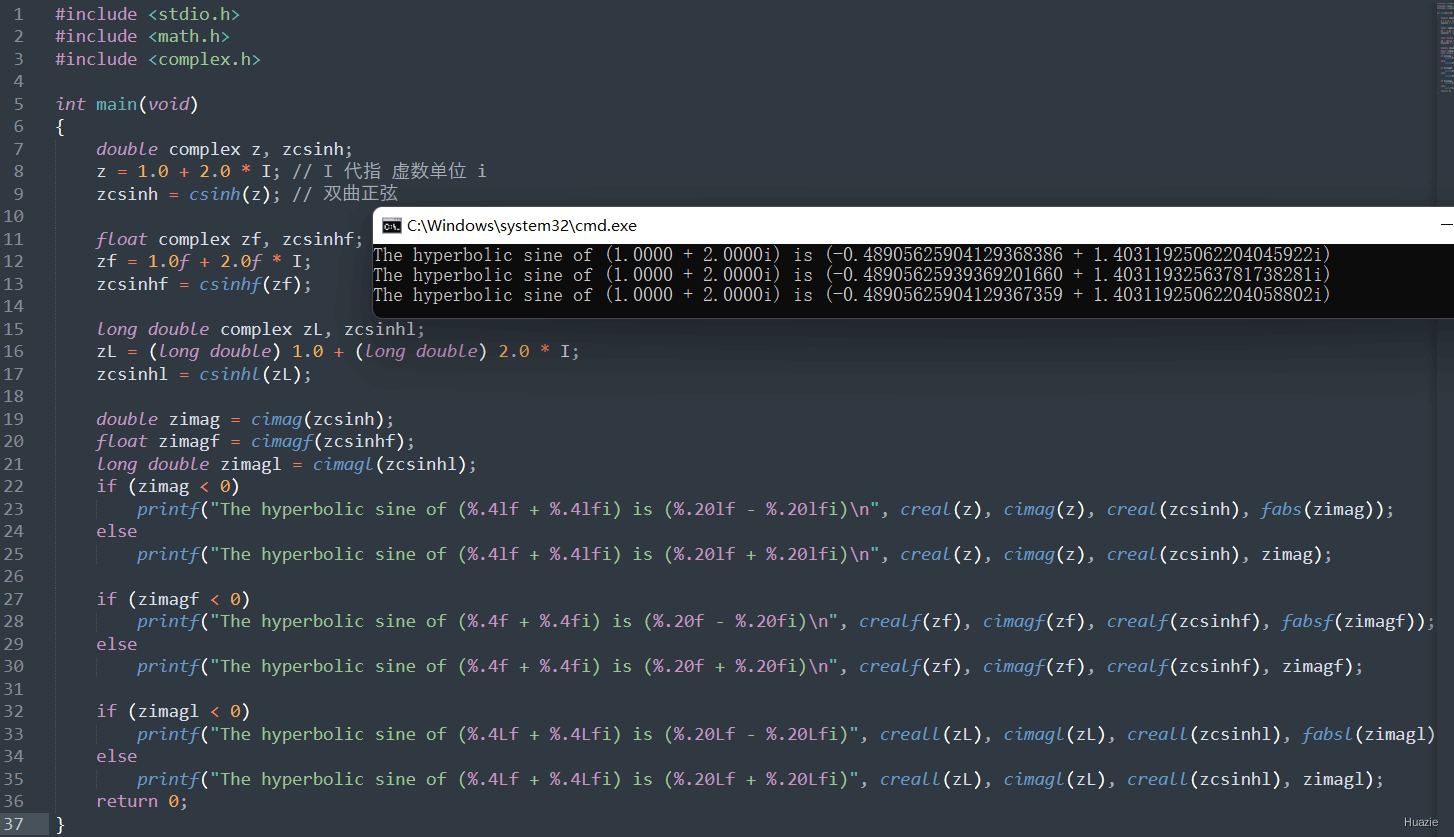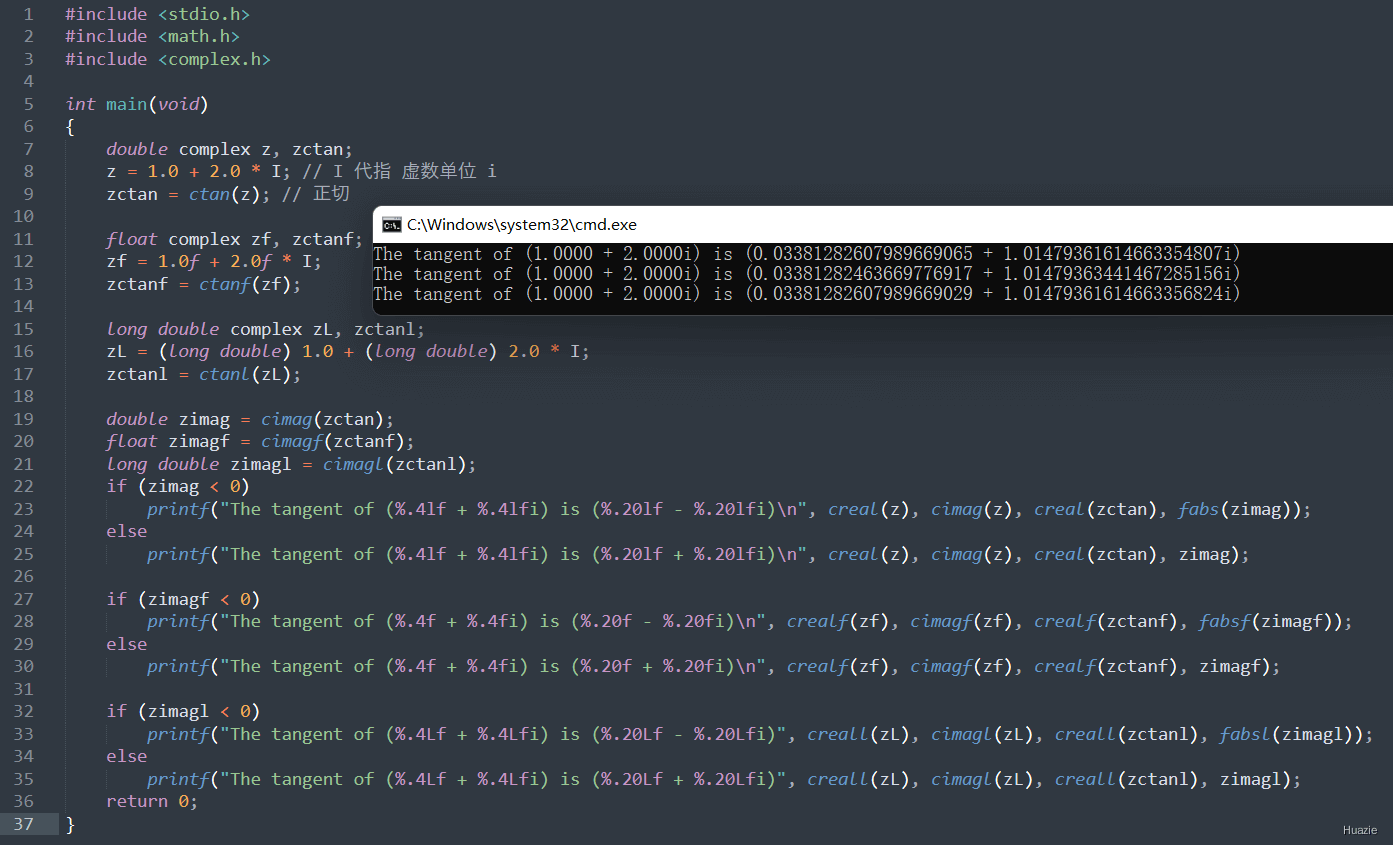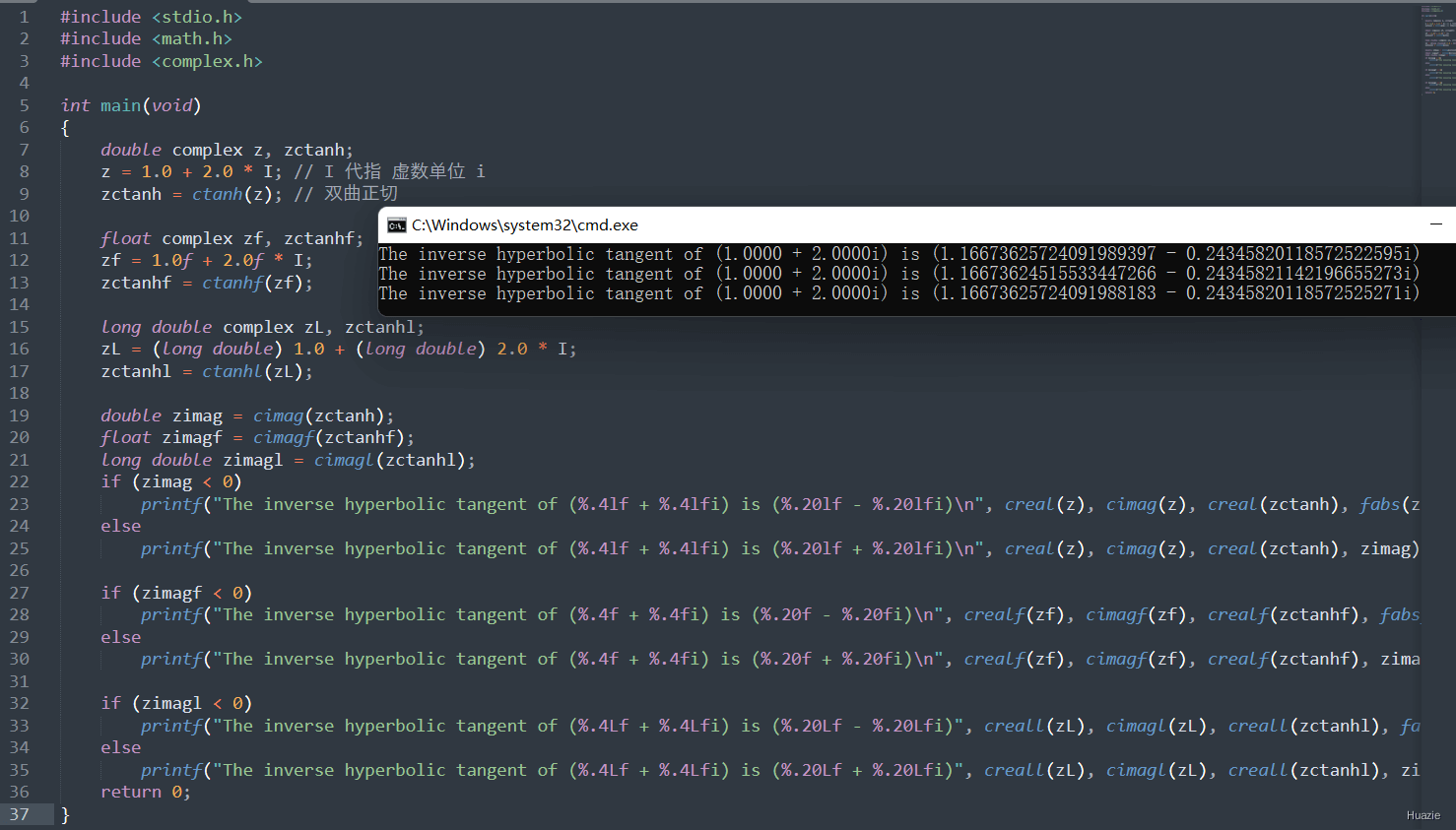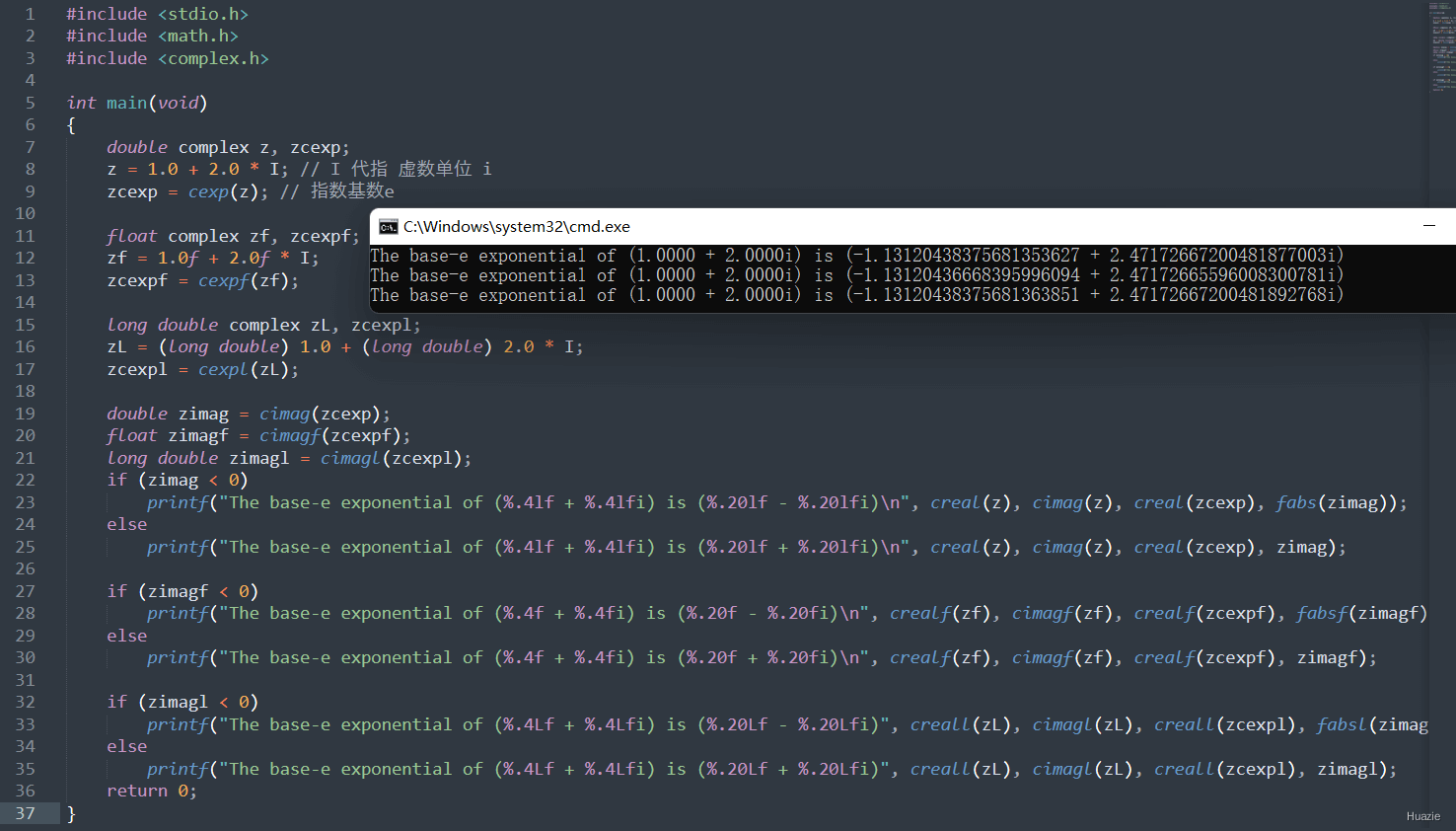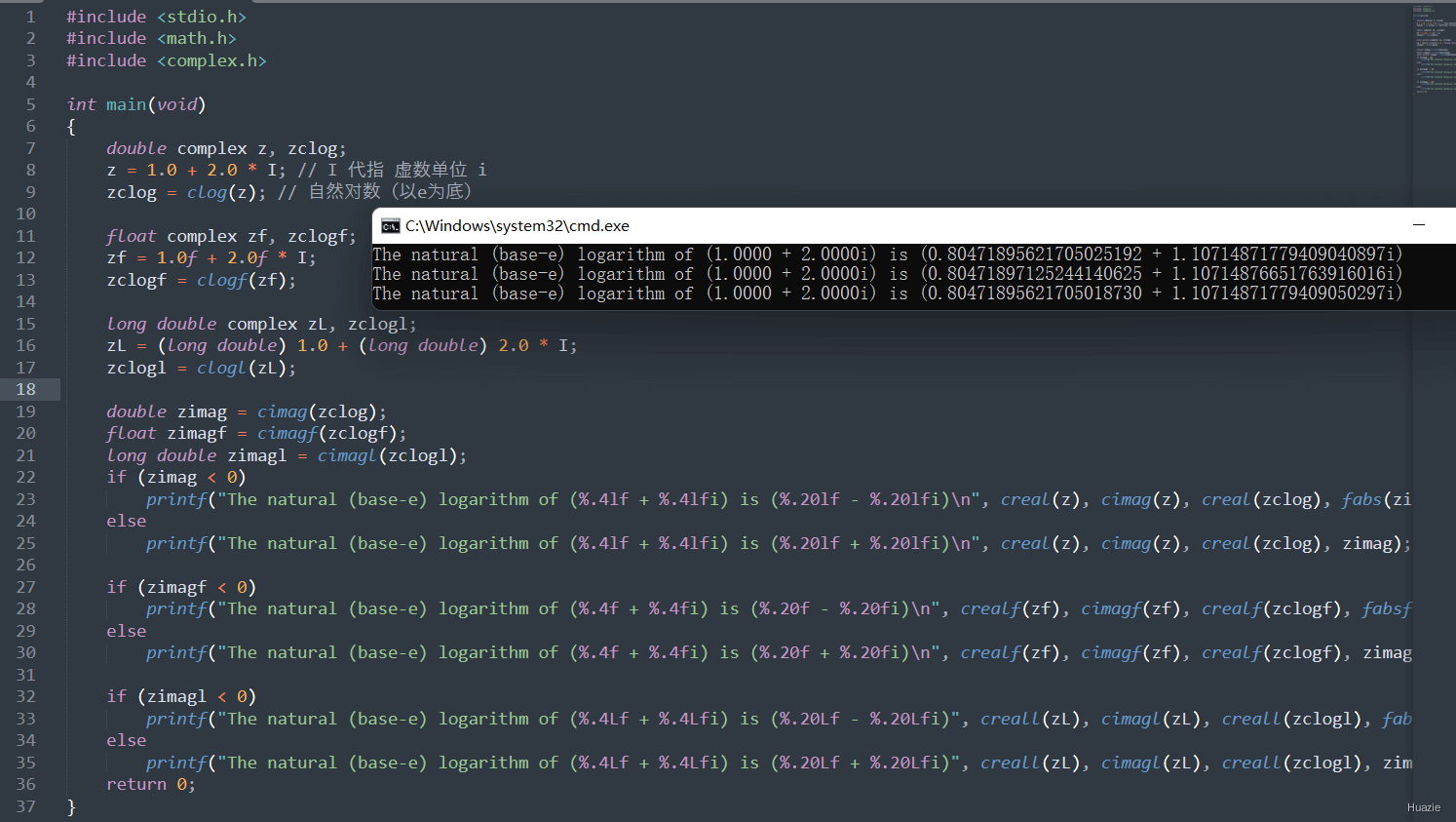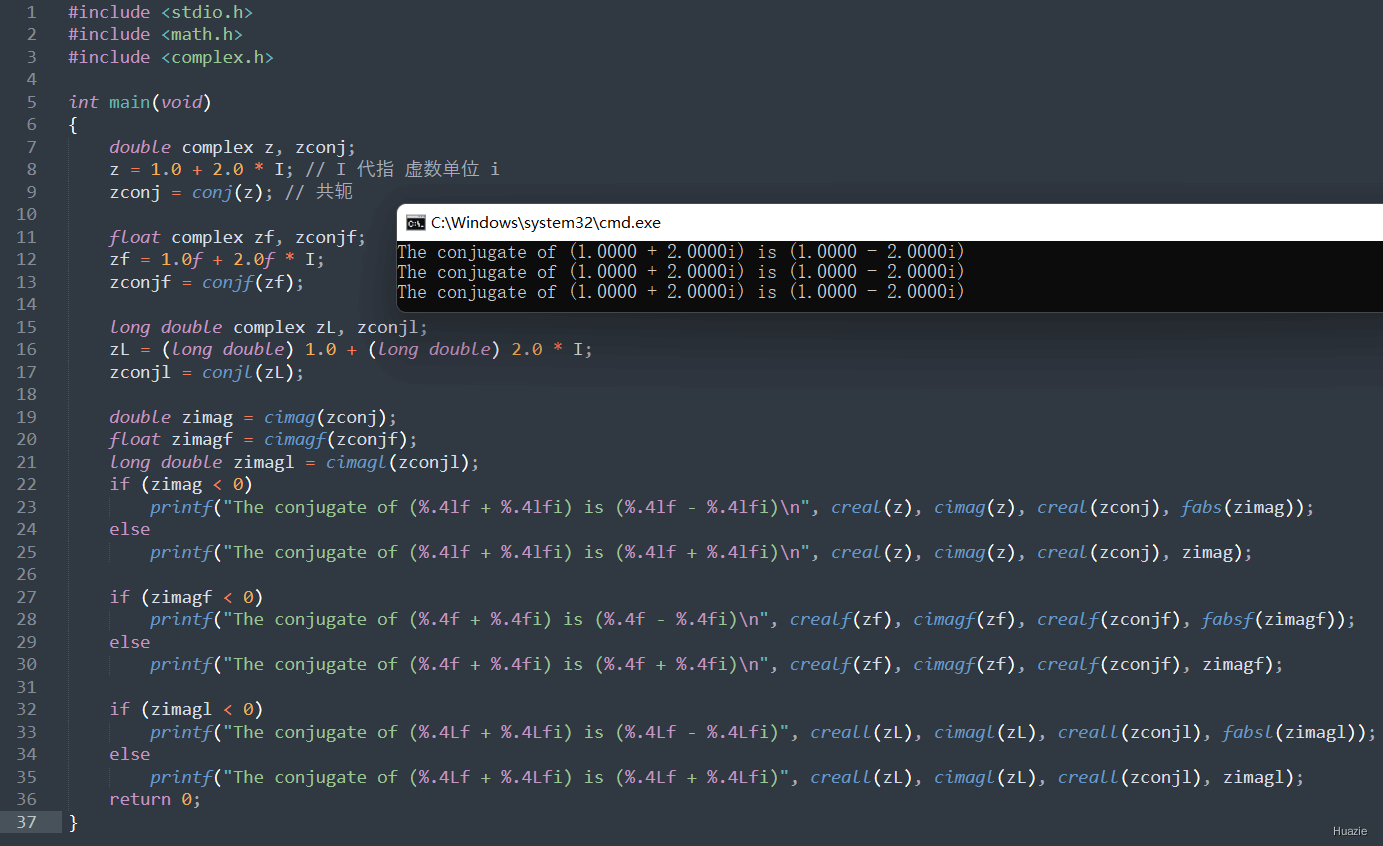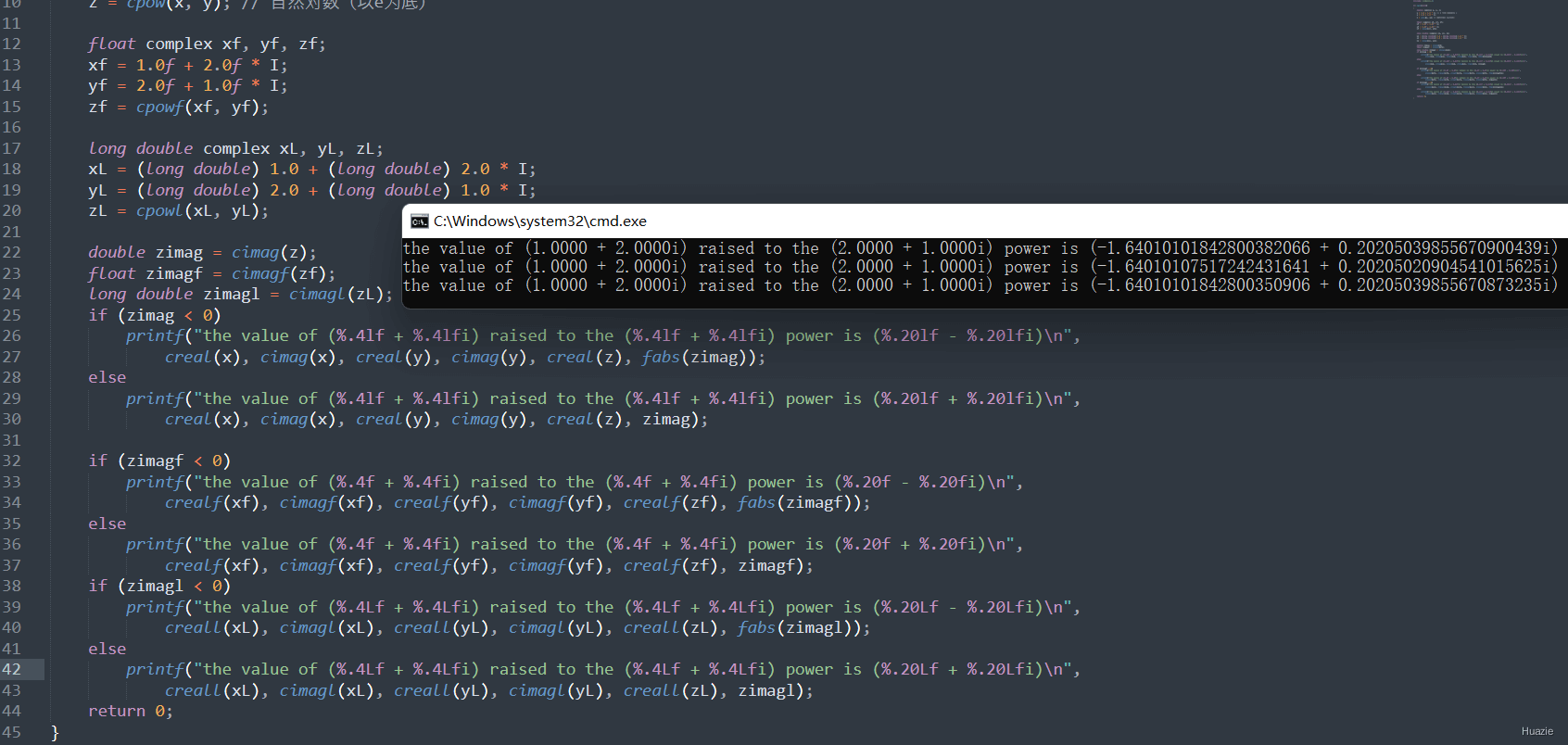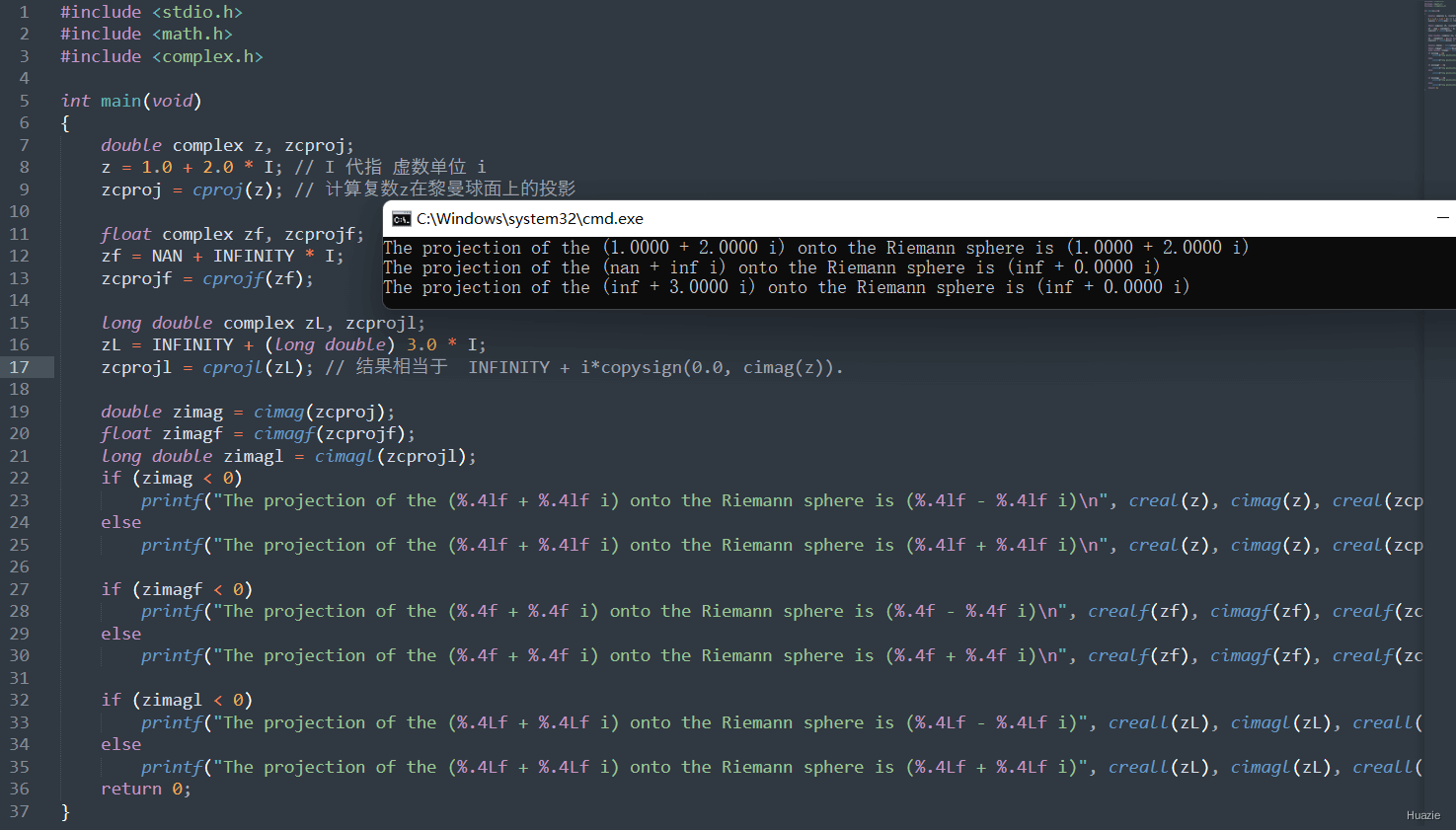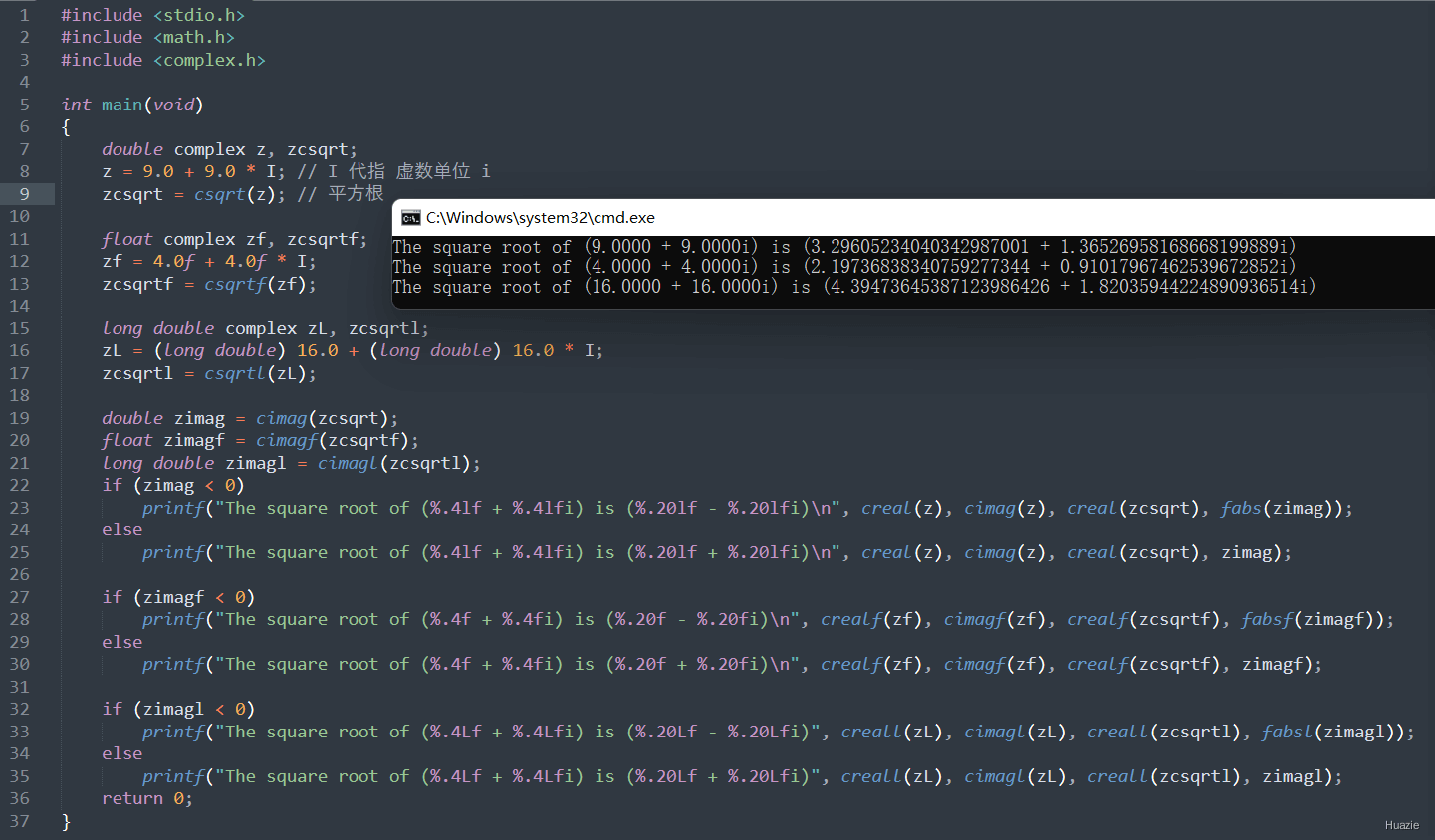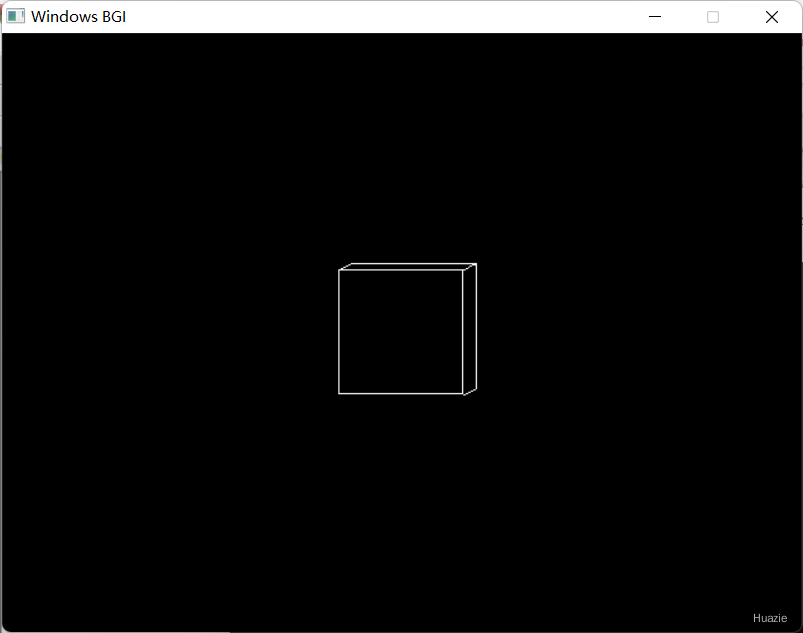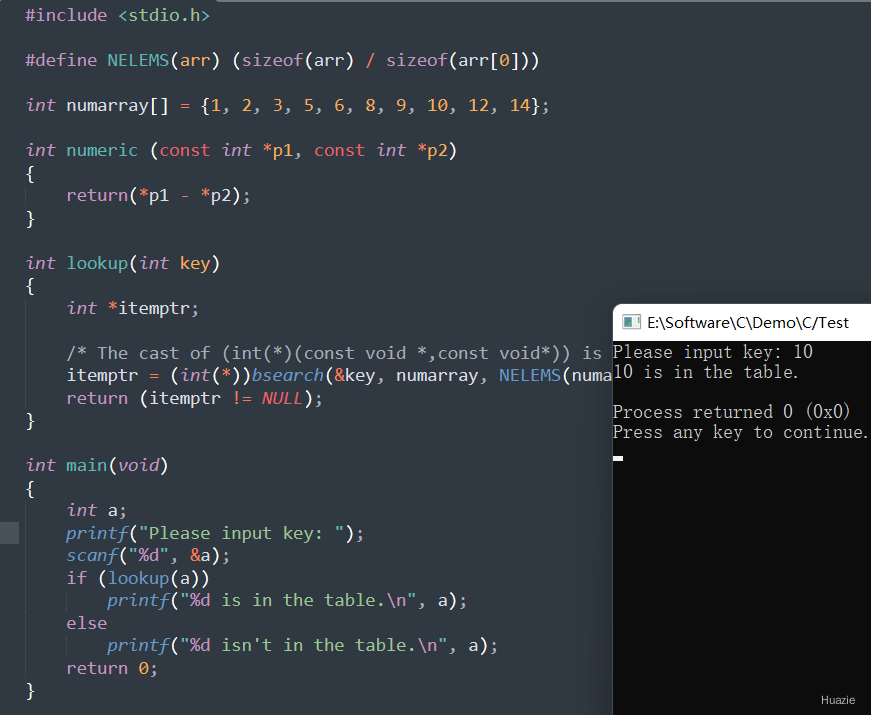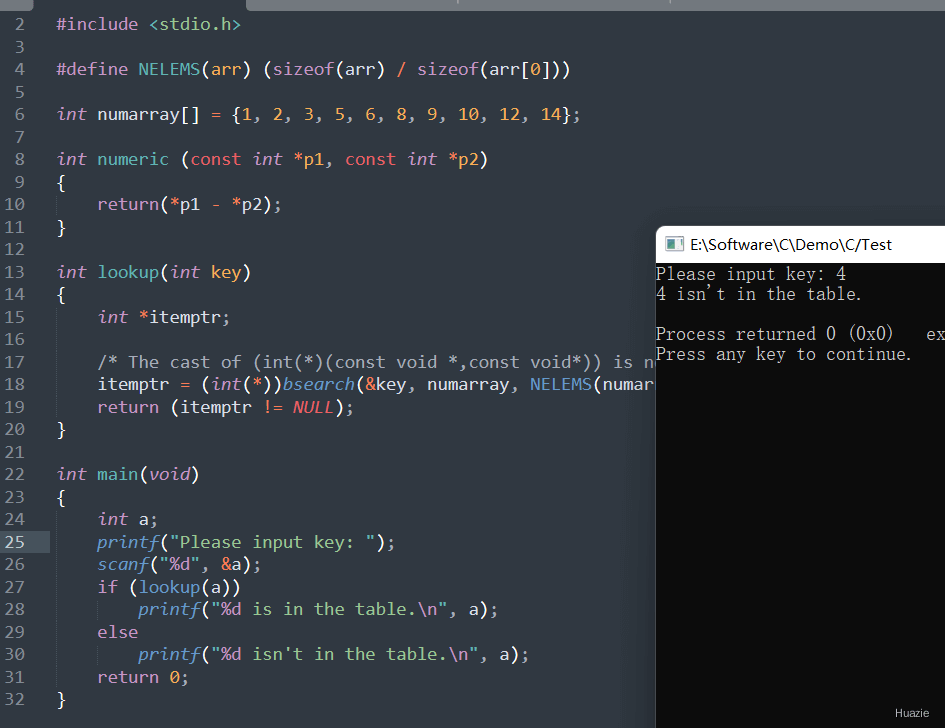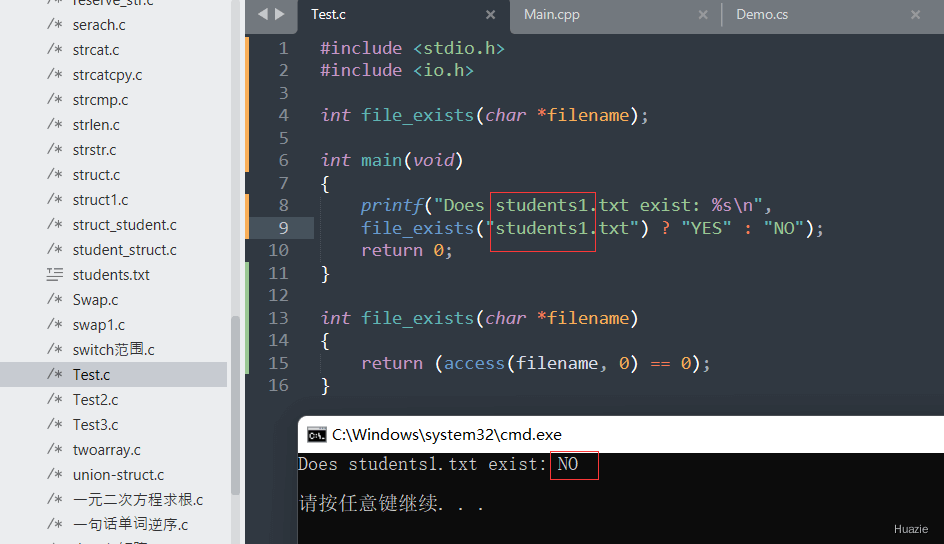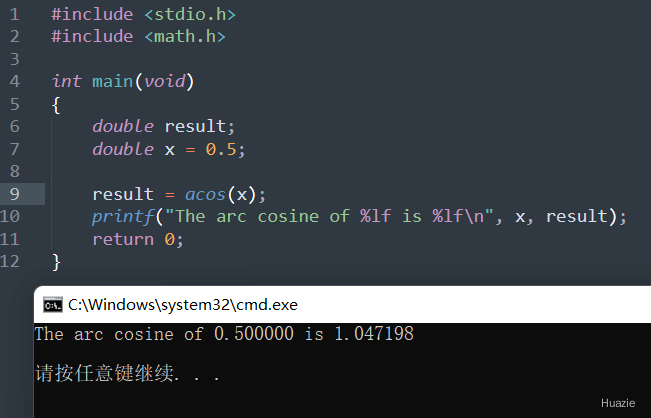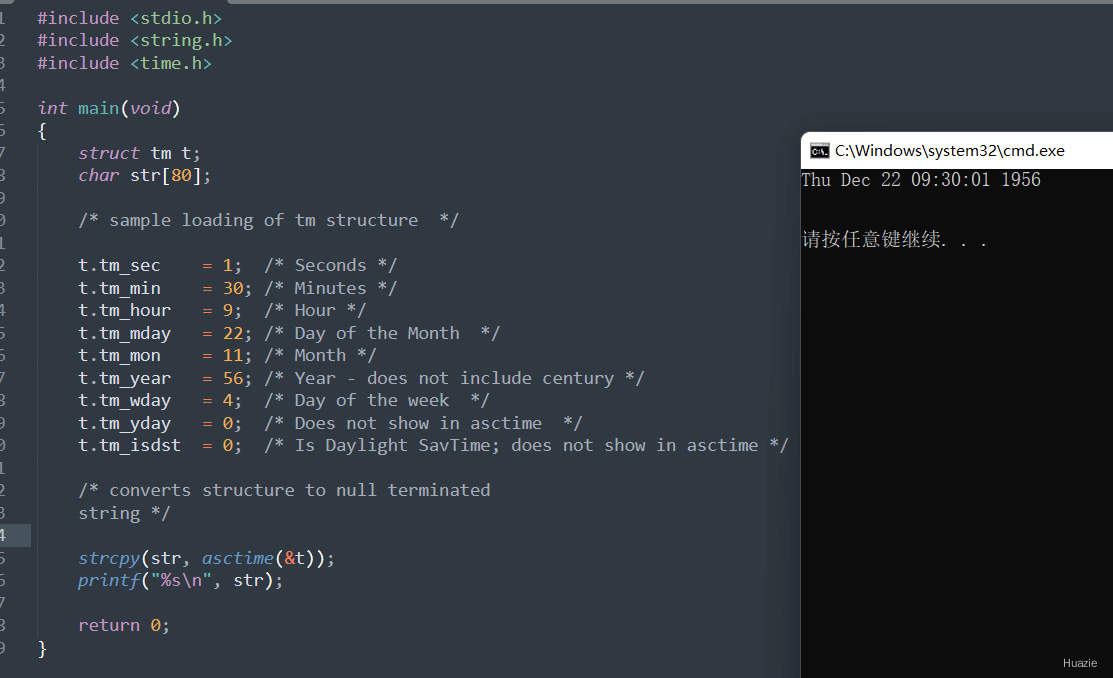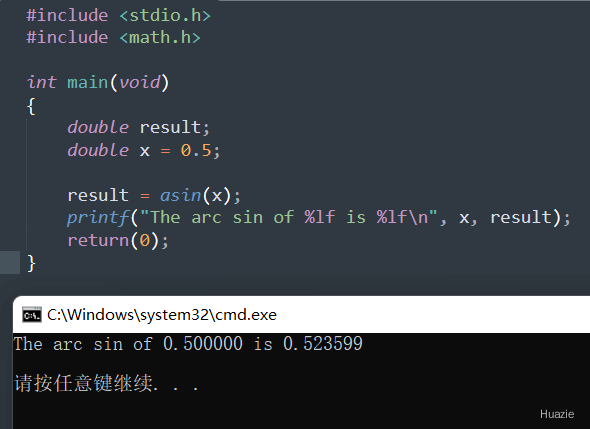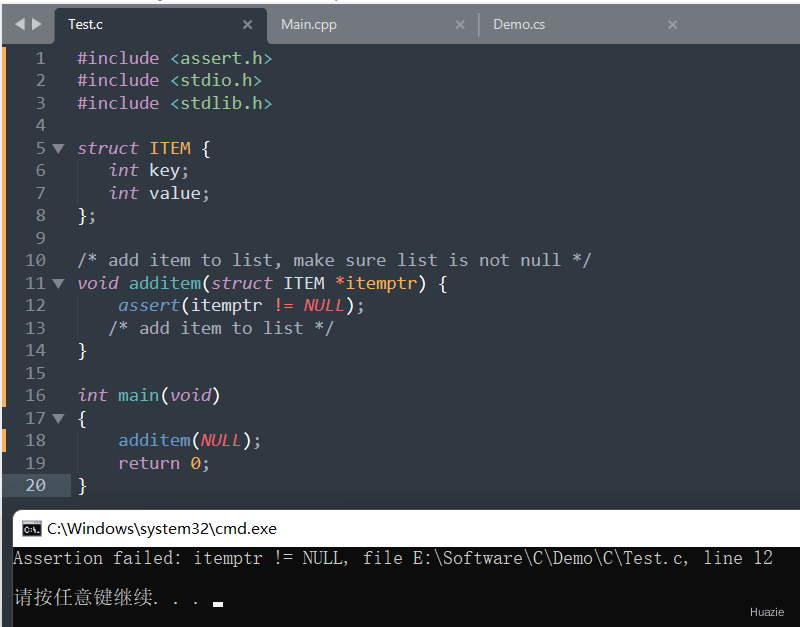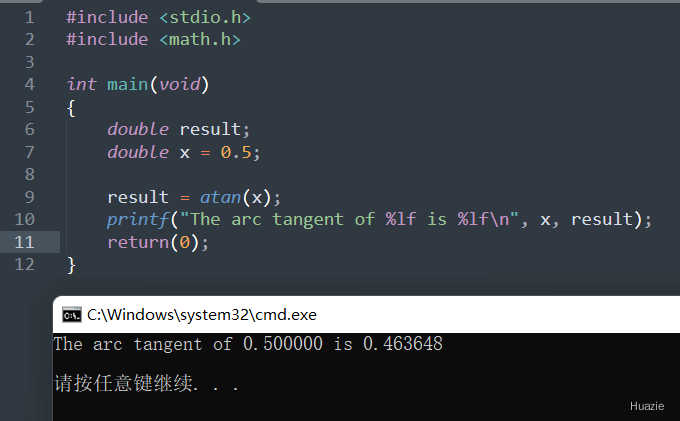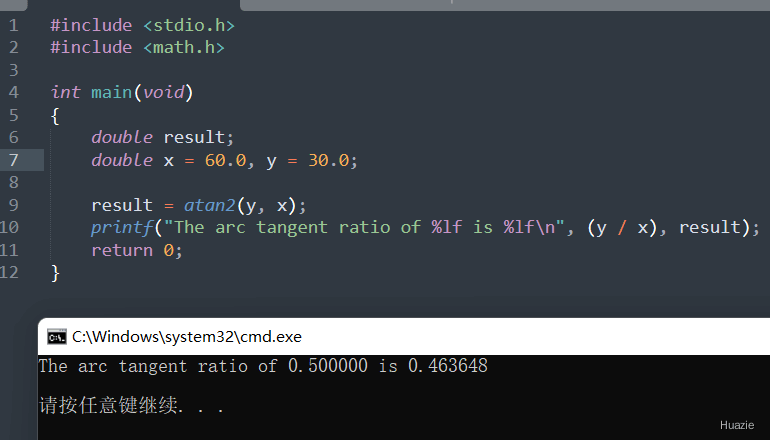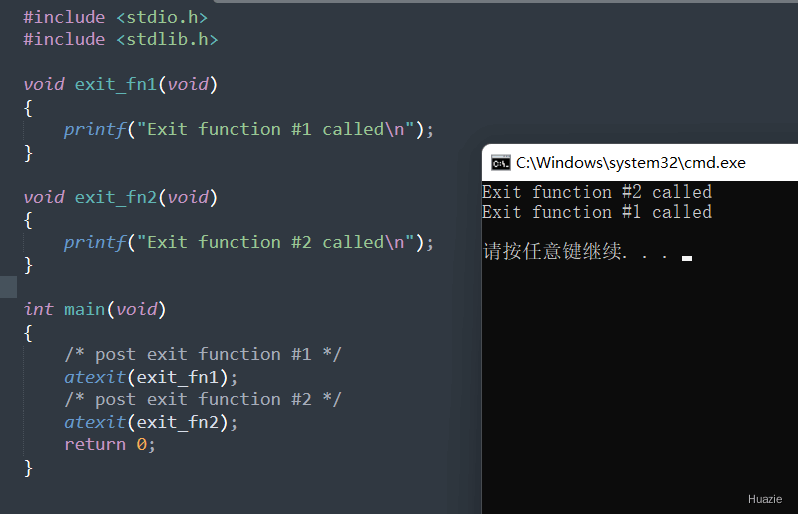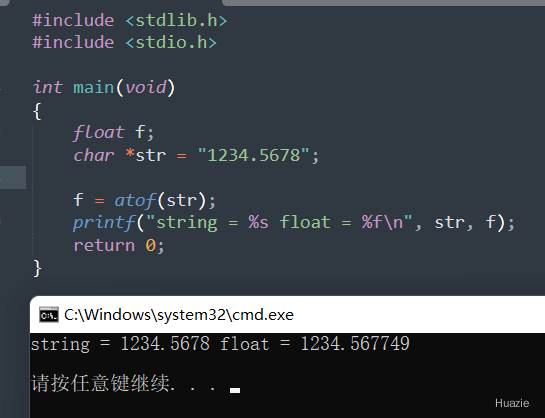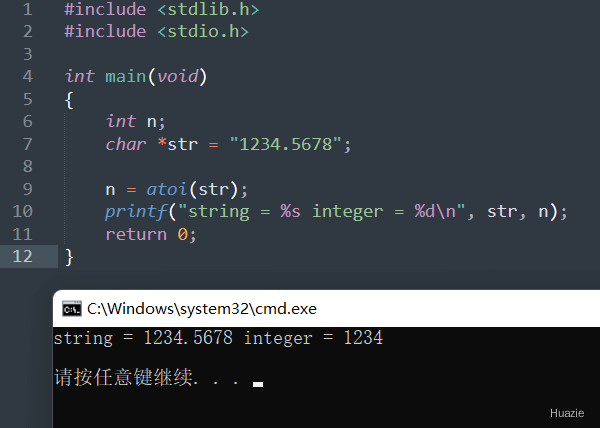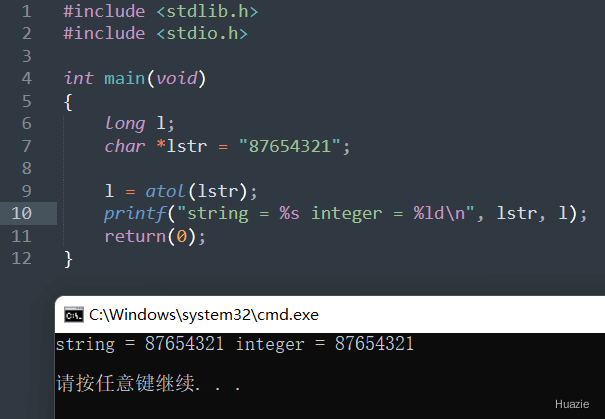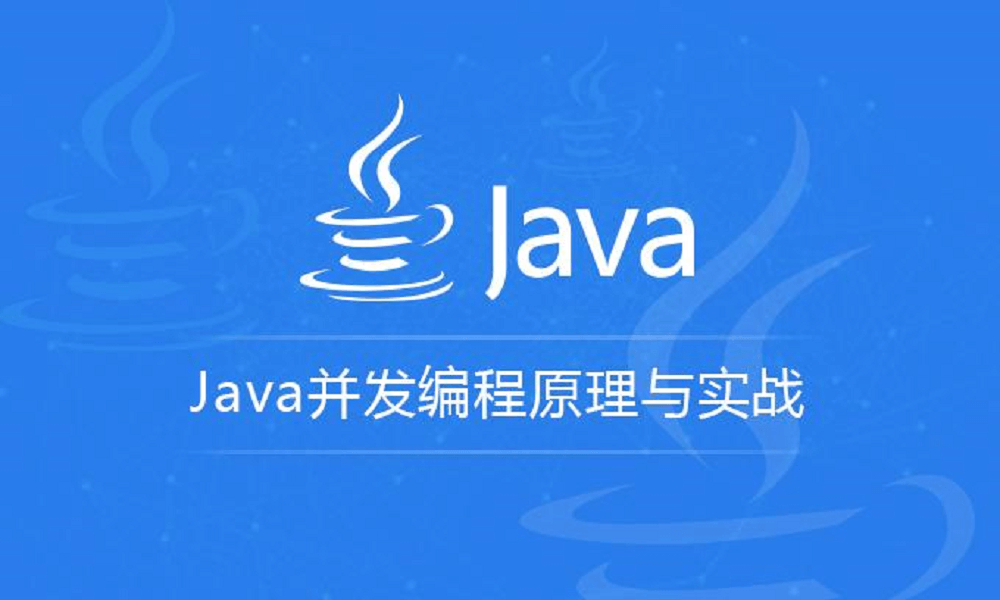double cabs (double complex z); |
计算复数 z 的绝对值(double) |
float cabsf (float complex z); |
计算复数 z 的绝对值(float) |
long double cabsl (long double complex z); |
计算复数 z 的绝对值(long double) |
double creal (double complex z); |
计算复数z的实部(double) |
float crealf (float complex z); |
计算复数z的实部(float) |
long double creall (long double complex z); |
计算复数z的实部(long double) |
double cimag (double complex z); |
计算复数z的虚部(double) |
float cimagf (float complex z); |
计算复数z的虚部(float) |
long double cimagl (long double complex z); |
计算复数z的虚部(long double) |
double carg (double complex z); |
计算复数z的相位角 (double) |
float cargf (float complex z); |
计算复数z的相位角(float) |
long double cargl (long double complex z); |
计算复数z的相位角(long double) |
double complex cacos (double complex z); |
计算复数z的反余弦 (double complex) |
float complex cacosf (float complex z); |
计算复数z的反余弦(float complex) |
long double complex cacosl (long double complex z); |
计算复数z的反余弦(long double complex) |
double complex cacosh (double complex z); |
计算复数z的反双曲余弦(double complex) |
float complex cacoshf (float complex z); |
计算复数z的反双曲余弦(float complex) |
long double complex cacoshl (long double complex z); |
计算复数z的反双曲余弦(long double complex) |
double complex casin (double complex z); |
计算复数z的反正弦(double complex) |
float complex casinf (float complex z); |
计算复数z的反正弦(float complex) |
long double complex casinl (long double complex z); |
计算复数z的反正弦(long double complex) |
double complex casinh (double complex z); |
计算复数z的反双曲正弦(double complex) |
float complex casinhf (float complex z); |
计算复数z的反双曲正弦(float complex) |
long double complex casinhl (long double complex z); |
计算复数z的反双曲正弦(long double complex) |
double complex catan (double complex z); |
计算复数z的反正切(double complex) |
float complex catanf (float complex z); |
计算复数z的反正切(float complex) |
long double complex catanl (long double complex z); |
计算复数z的反正切(long double complex) |
double complex catanh (double complex z); |
计算复数z的反双曲正切(double complex) |
float complex catanhf (float complex z); |
计算复数z的反双曲正切(float complex) |
long double complex catanhl (long double complex z); |
计算复数z的反双曲正切(long double complex) |
double complex ccos (double complex z); |
计算复数z的余弦(double complex) |
float complex ccosf (float complex z); |
计算复数z的余弦(float complex) |
long double complex ccosl (long double complex z); |
计算复数z的余弦(long double complex) |
double complex ccosh (double complex z); |
计算复数z的双曲余弦(double complex) |
float complex ccoshf (float complex z); |
计算复数z的双曲余弦(float complex) |
long double complex ccoshl (long double complex z); |
计算复数z的双曲余弦(long double complex) |
double complex csin (double complex z); |
计算复数z的正弦(double complex) |
float complex csinf (float complex z); |
计算复数z的正弦(float complex) |
long double complex csinl (long double complex z); |
计算复数z的正弦(long double complex) |
double complex csinh (double complex z); |
计算复数z的双曲正弦(double complex) |
float complex csinhf (float complex z); |
计算复数z的双曲正弦(float complex) |
long double complex csinhl (long double complex z); |
计算复数z的双曲正弦(long double complex) |
double complex ctan (double complex z); |
计算复数z的正切(double complex) |
float complex ctanf (float complex z); |
计算复数z的正切(float complex) |
long double complex ctanl (long double complex z); |
计算复数z的正切(long double complex) |
double complex ctanh (double complex z); |
计算复数z的双曲正切(double complex) |
float complex ctanhf (float complex z); |
计算复数z的双曲正切(float complex) |
long double complex ctanhl (long double complex z); |
计算复数z的双曲正切(long double complex) |
double complex cexp (double complex z); |
计算复数z的指数基数e(double complex) |
float complex cexpf (float complex z); |
计算复数z的指数基数e(float complex) |
long double complex cexpl (long double complex z); |
计算复数z的指数基数e(long double complex) |
double complex clog (double complex z); |
计算复数z的自然对数(以e为底)(double complex) |
float complex clogf (float complex z); |
计算复数z的自然对数(以e为底)(float complex) |
long double complex clogl (long double complex z); |
计算复数z的自然对数(以e为底)(long double complex) |
double complex conj (double complex z); |
计算复数z的共轭(double complex) |
float complex conjf (float complex z); |
计算复数z的共轭(float complex) |
long double complex conjl (long double complex z); |
计算复数z的共轭(long double complex) |
double complex cpow (double complex x, double complex y); |
计算x的y次方值 (double complex) |
float complex cpowf (float complex x, float complex y); |
计算x的y次方值 (float complex) |
long double complex cpowl (long double complex x, long double complex y); |
计算x的y次方值 (double complex) |
double complex cproj (double complex z); |
计算复数z在黎曼球面上的投影(double complex) |
float complex cprojf (float complex z); |
计算复数z在黎曼球面上的投影(float complex) |
long double complex cprojl (long double complex z); |
计算复数z在黎曼球面上的投影(long double complex) |
double complex csqrt (double complex z); |
计算复数z的平方根(double complex) |
float complex csqrtf (float complex z); |
计算复数z的平方根(float complex) |
long double complex csqrtl (long double complex z); |
计算复数z的平方根(long double complex) |

